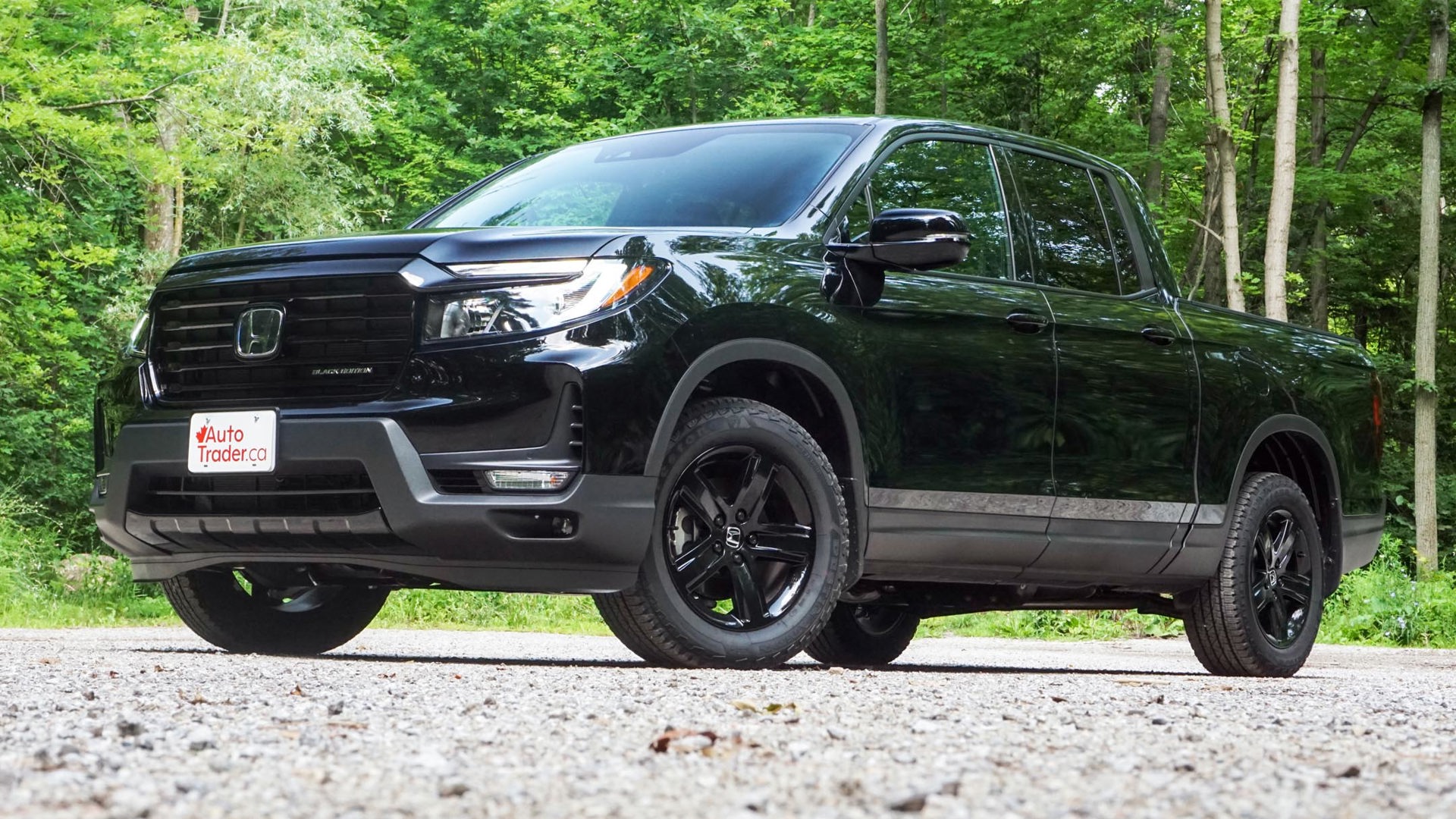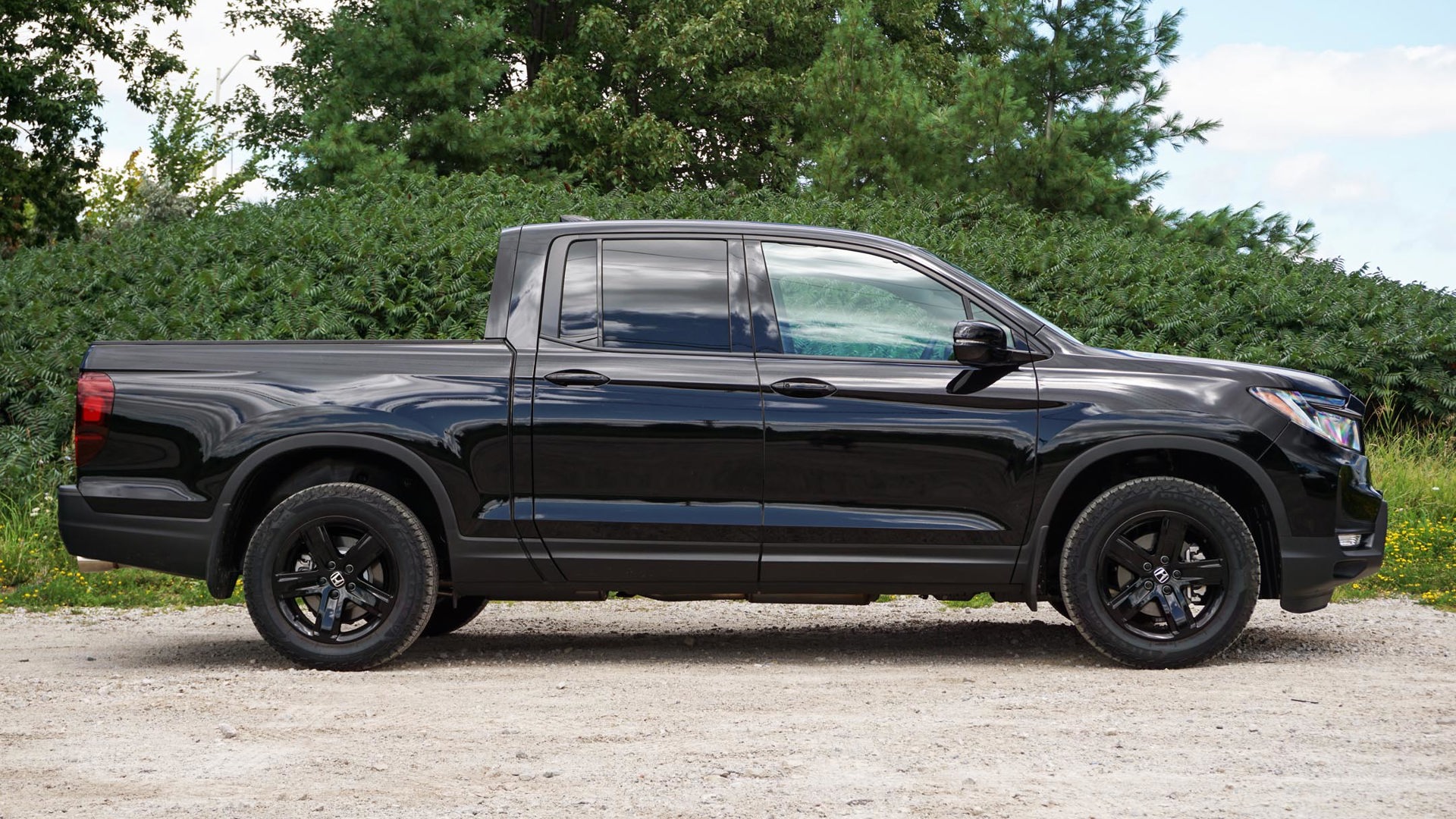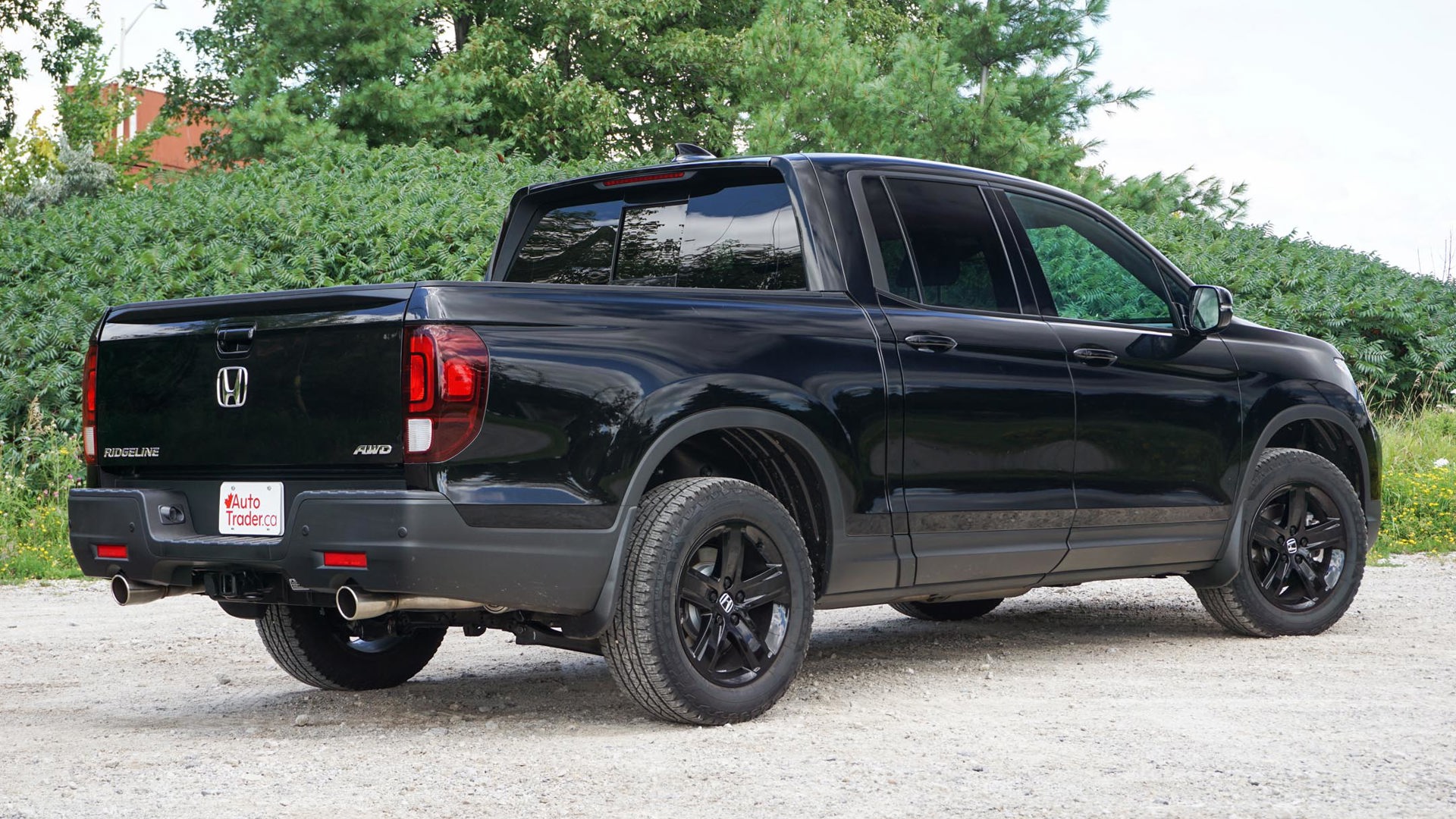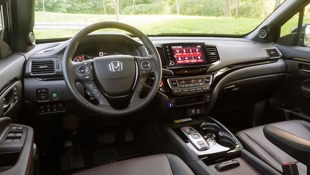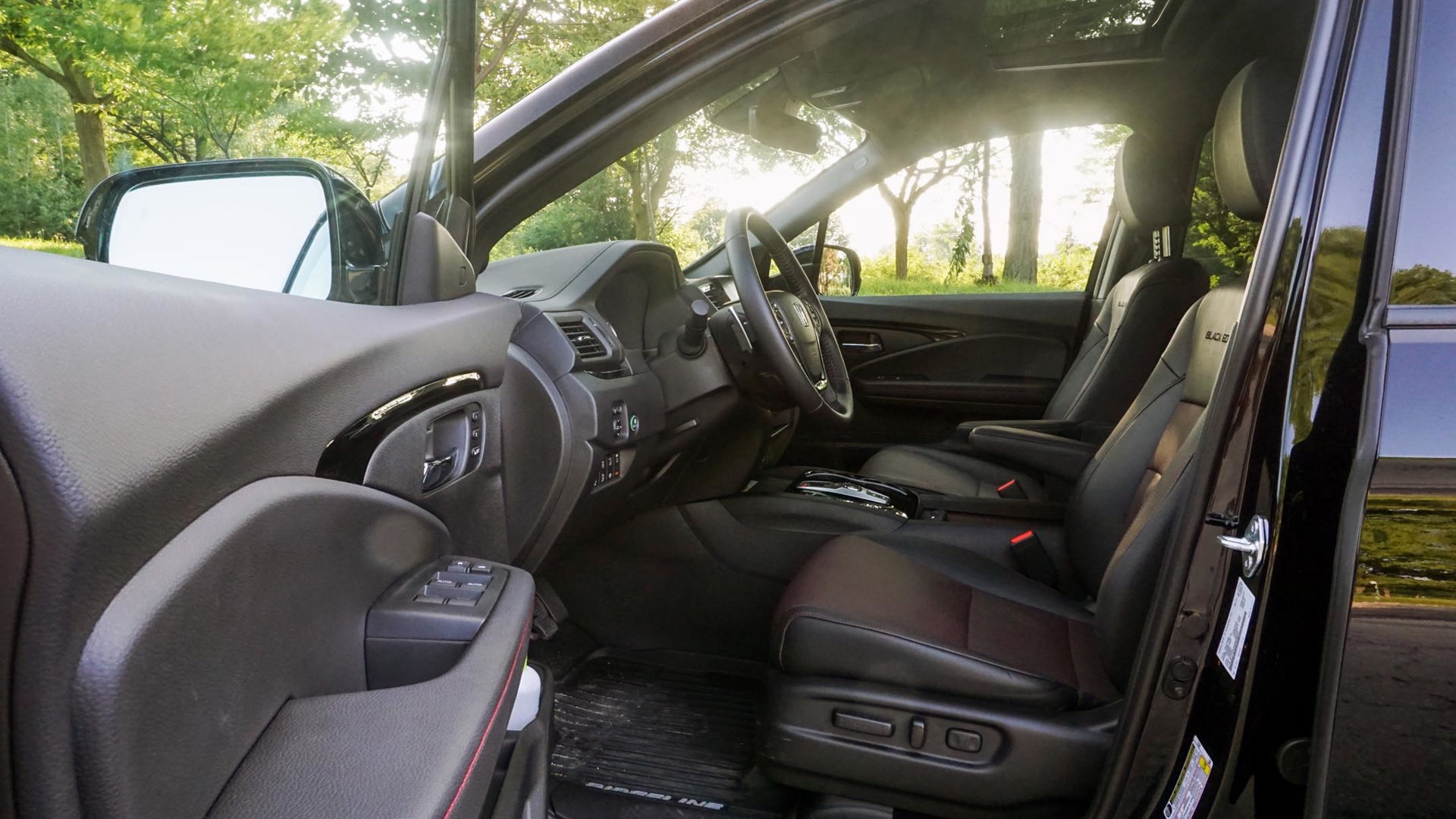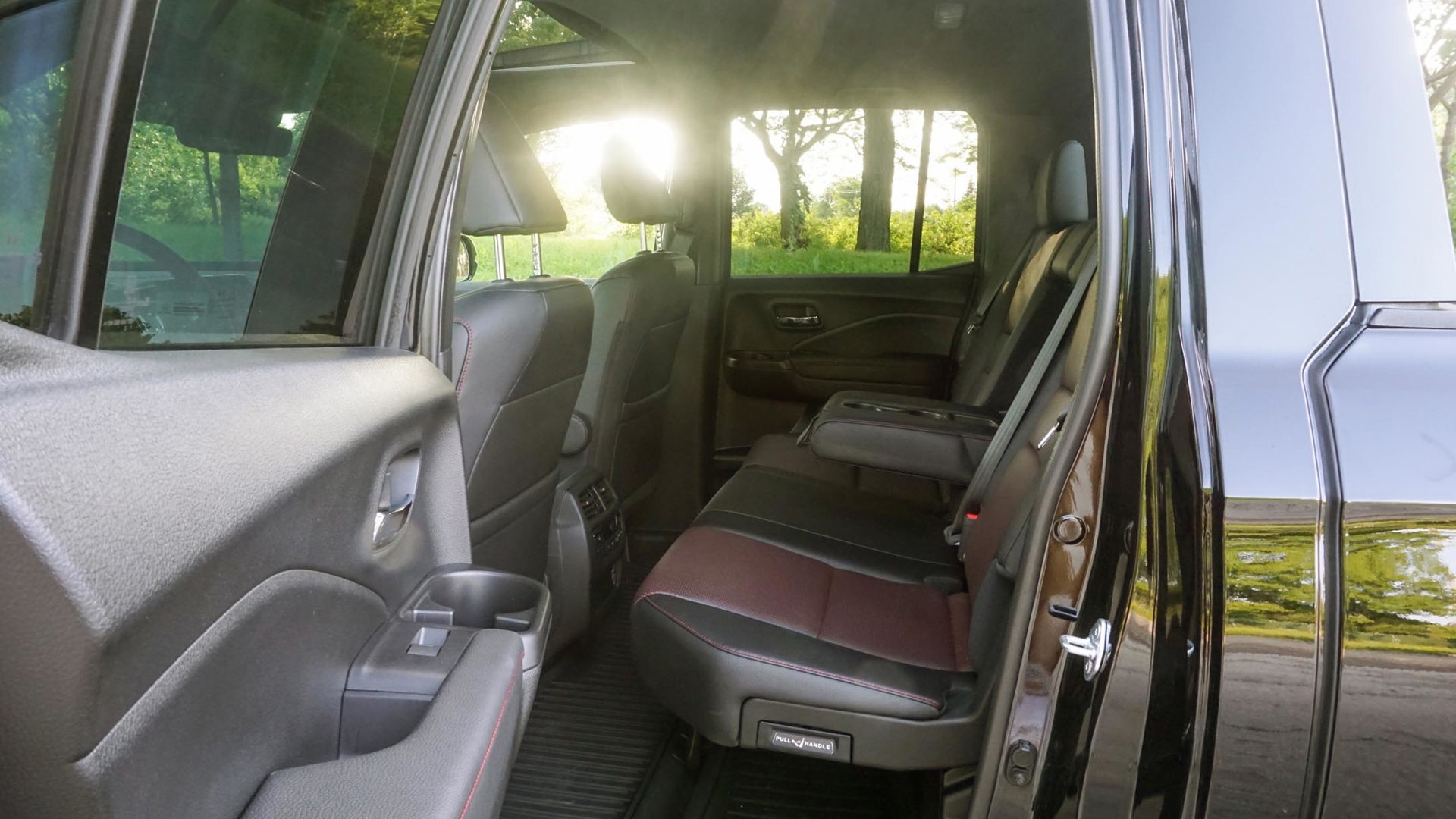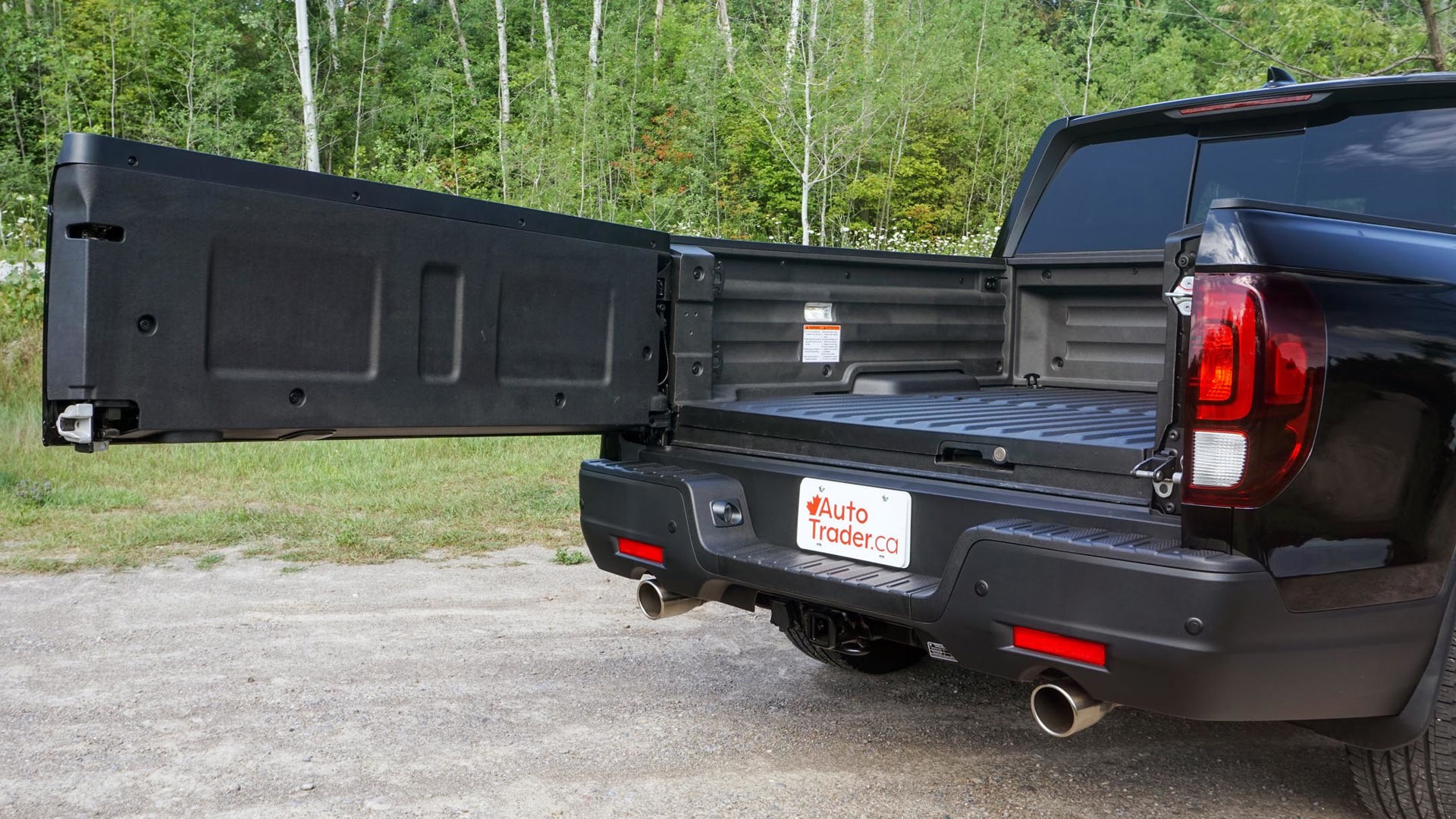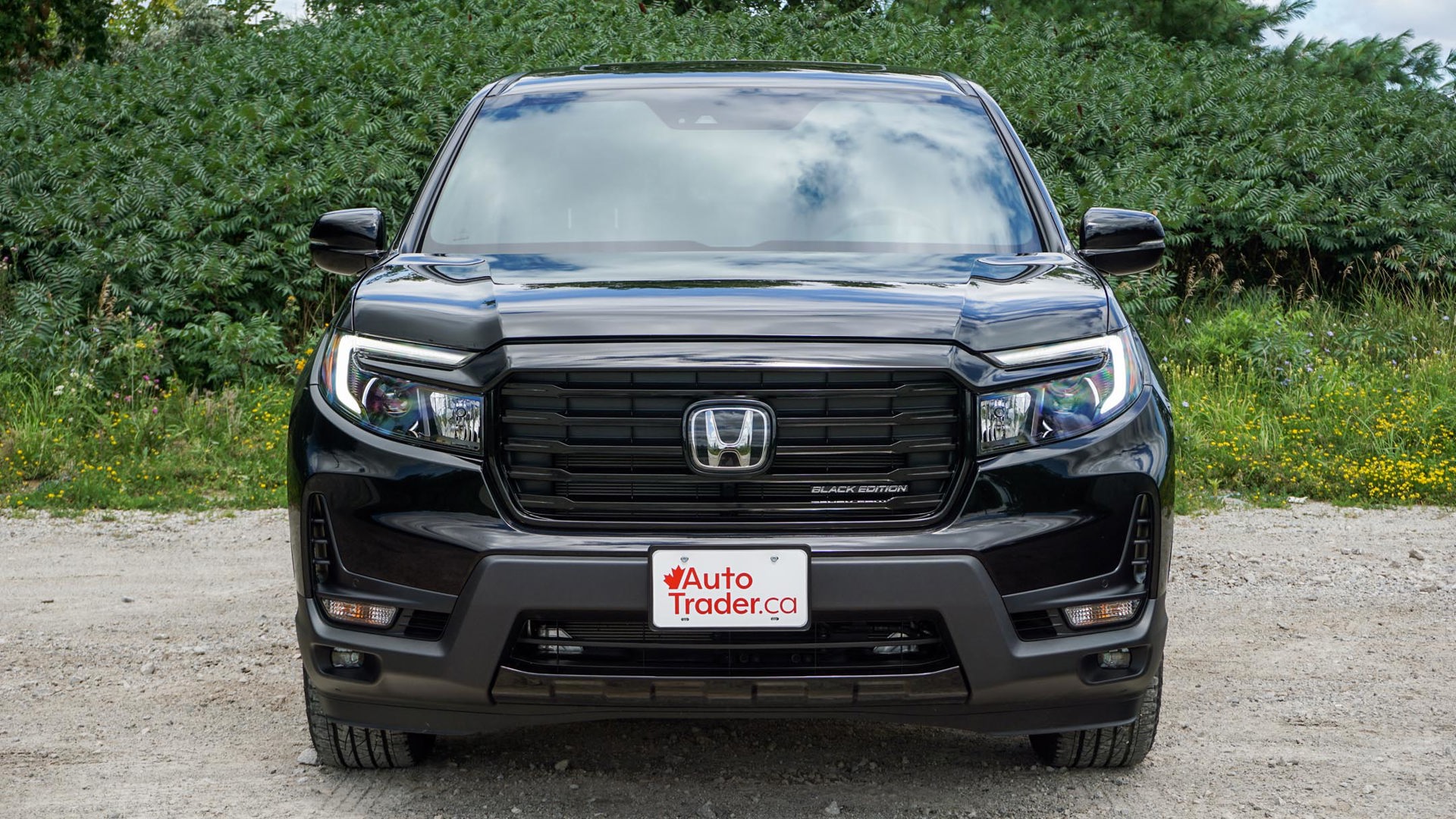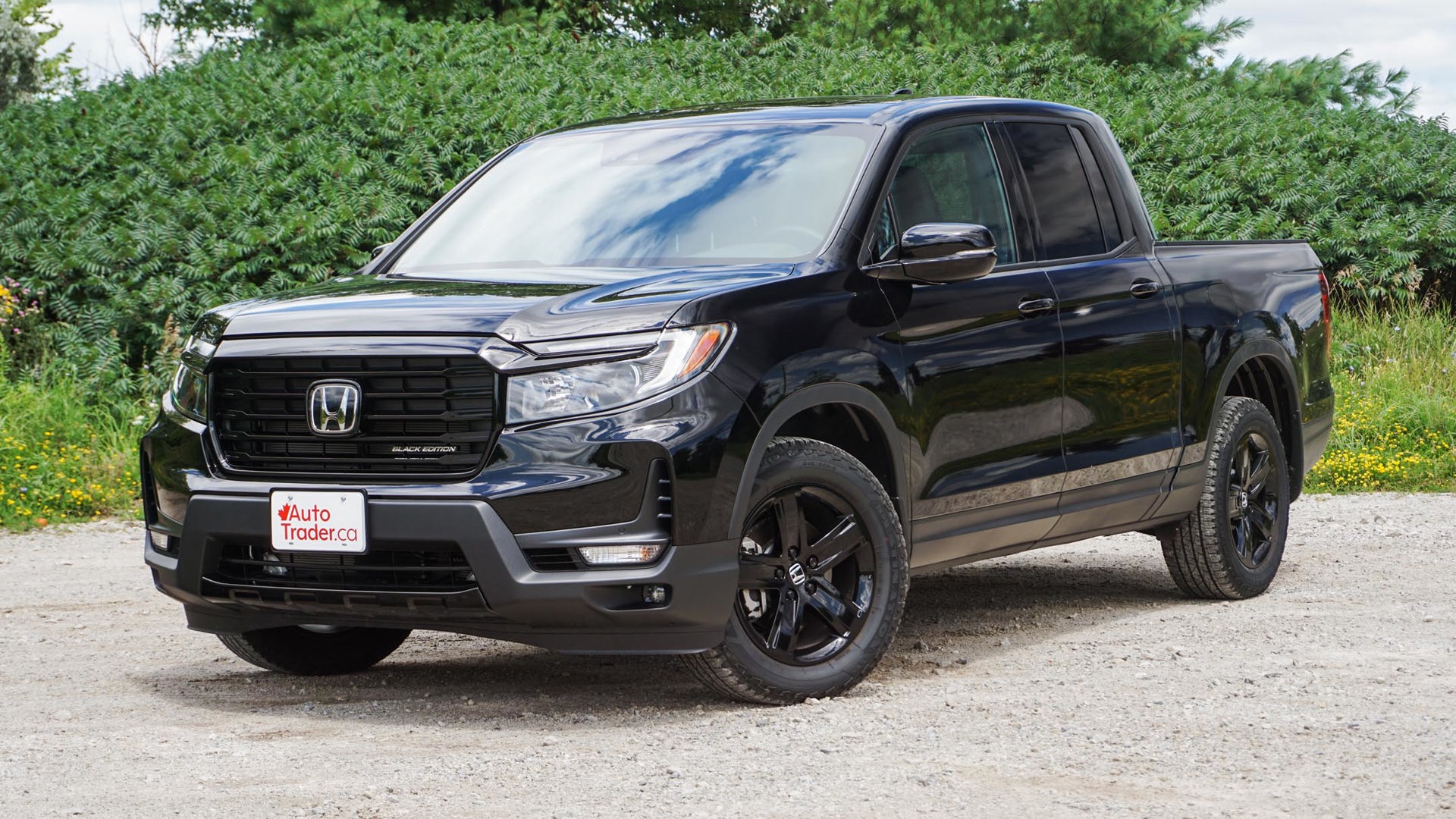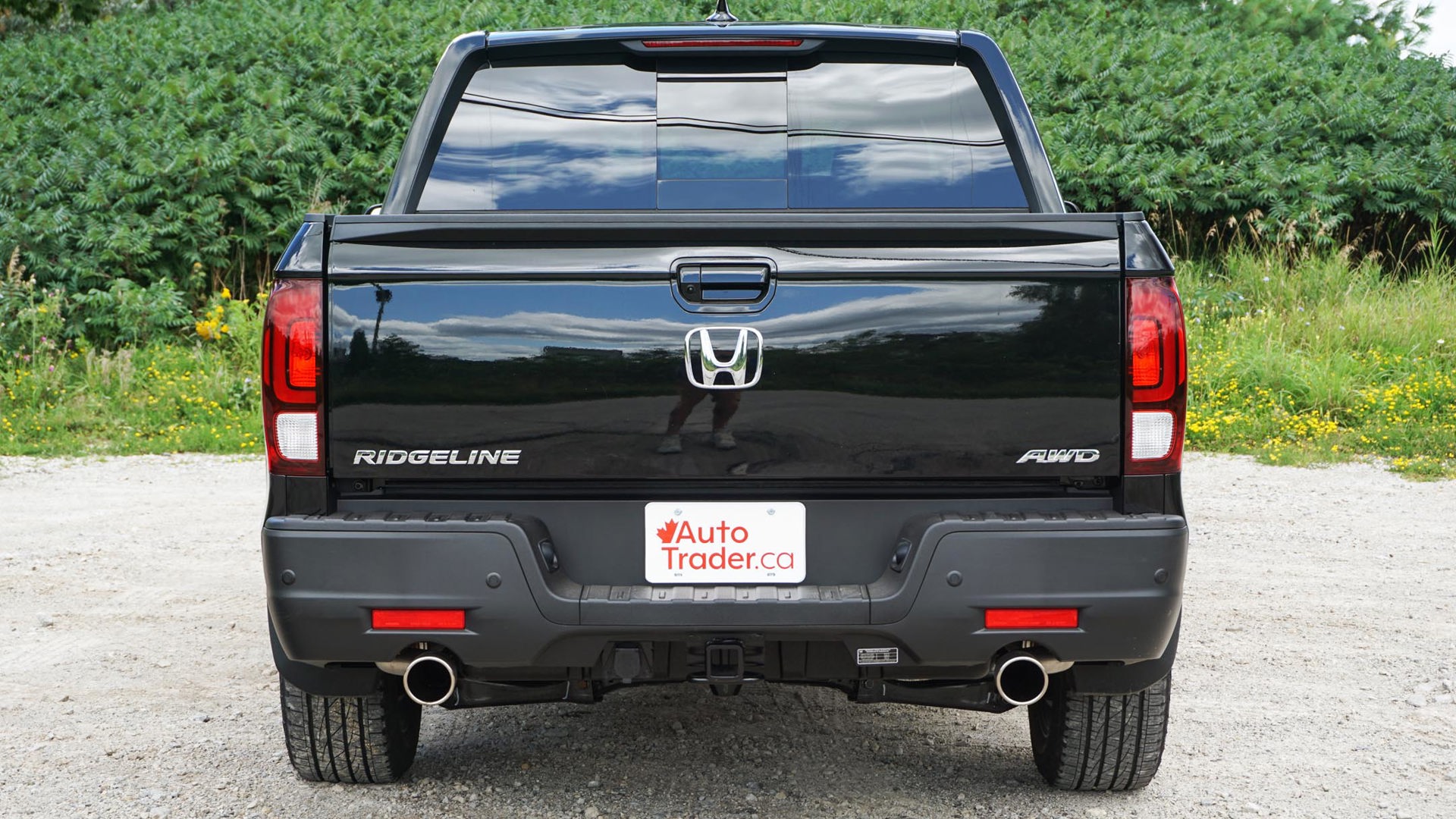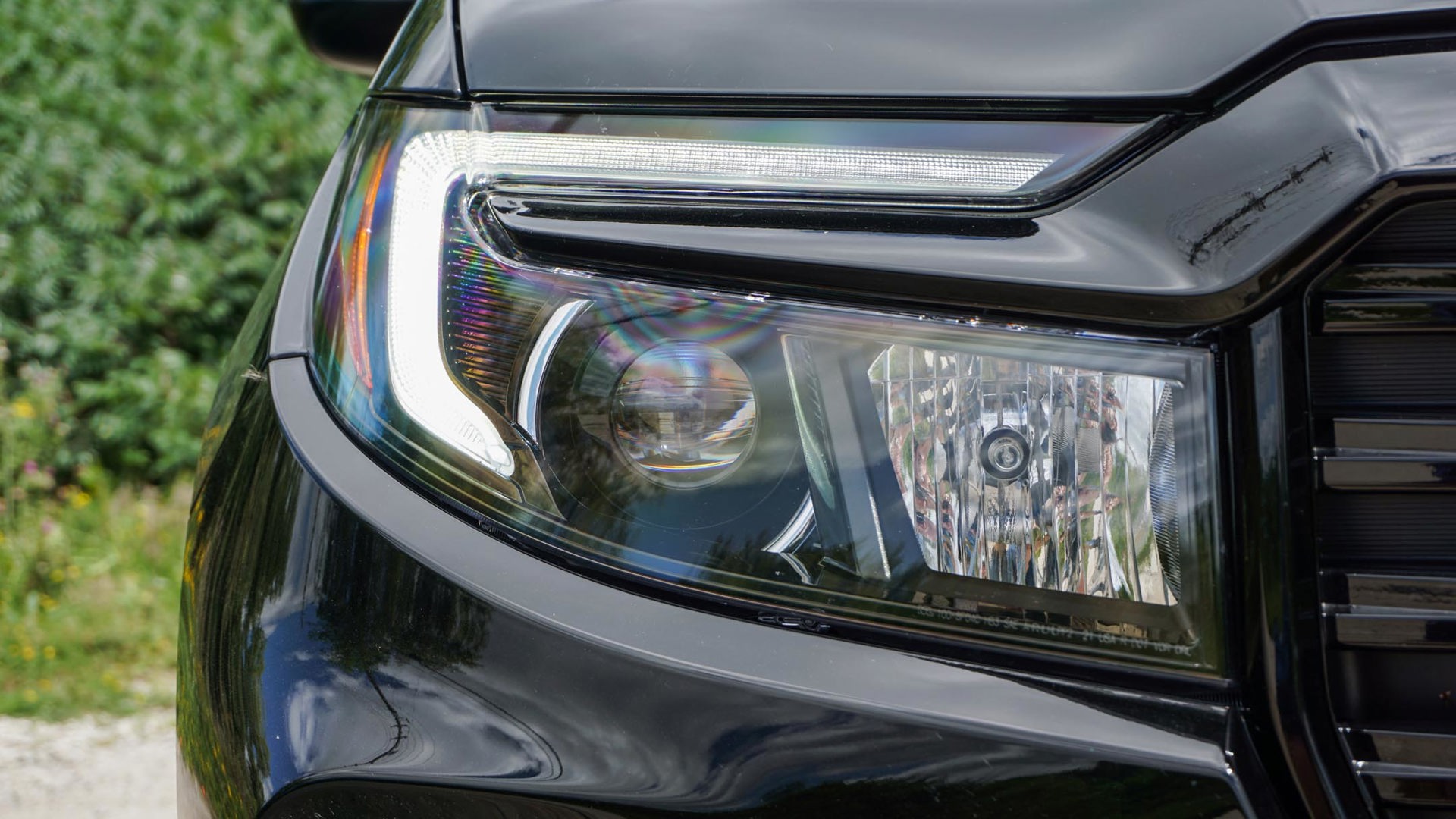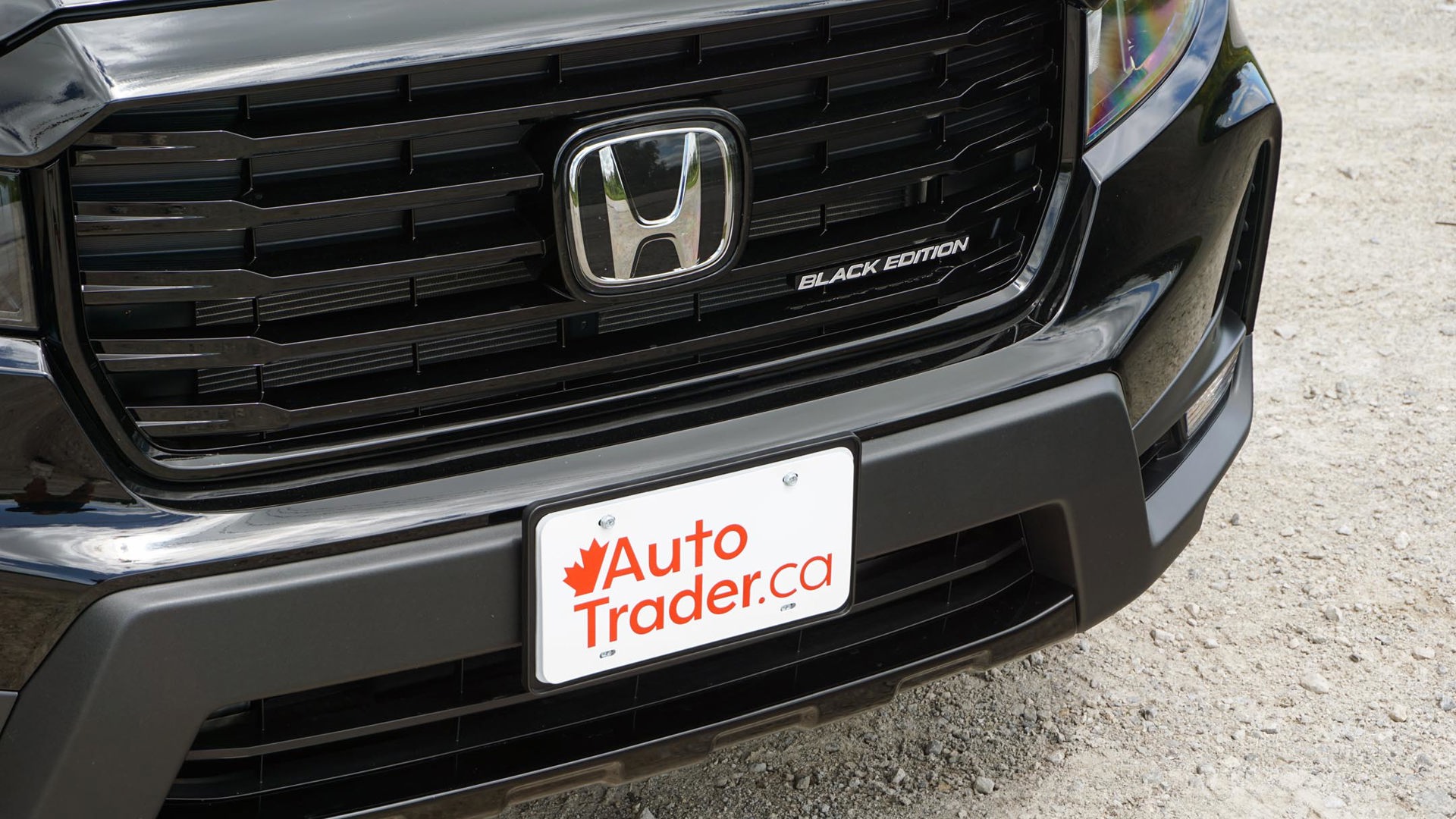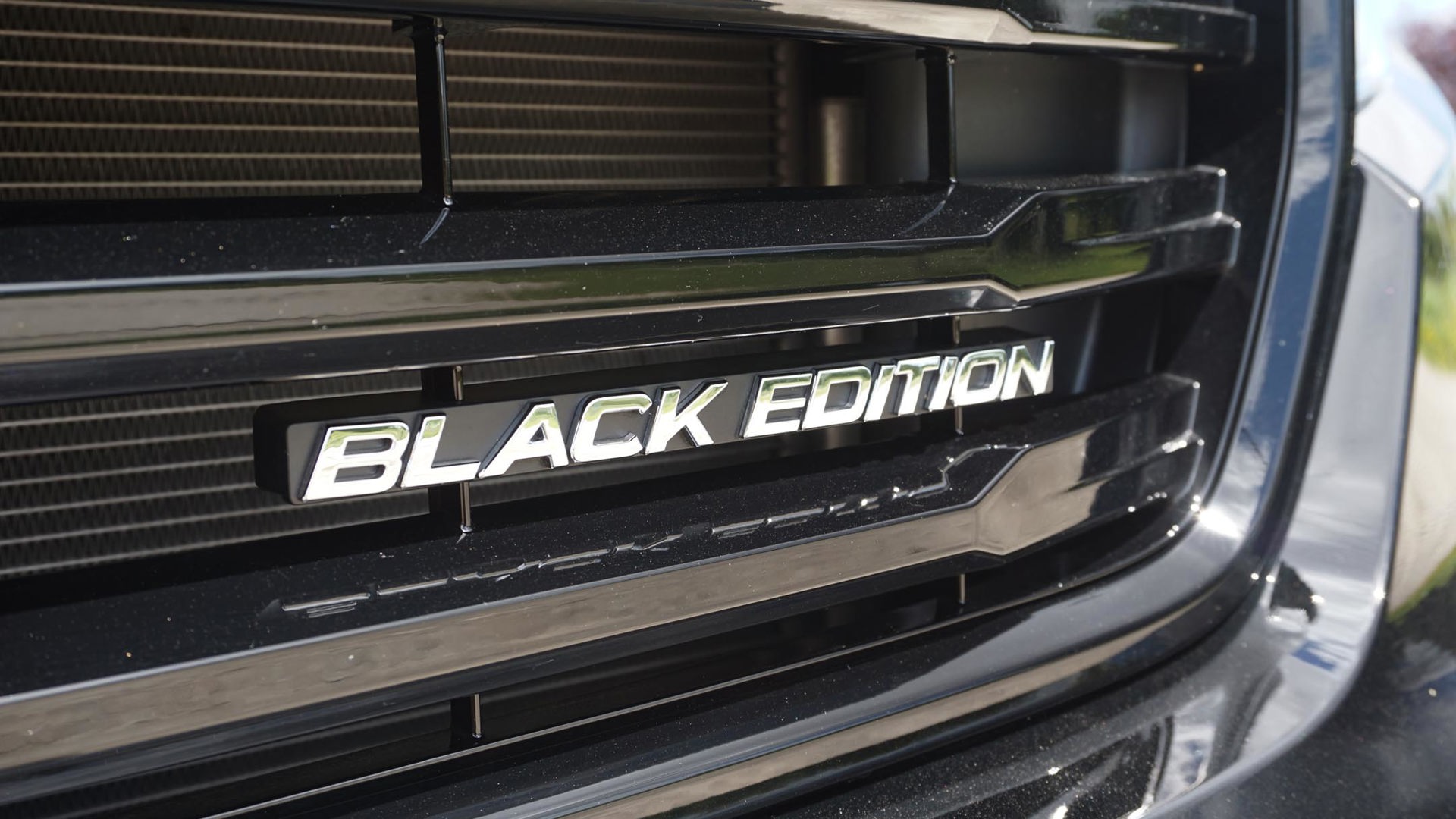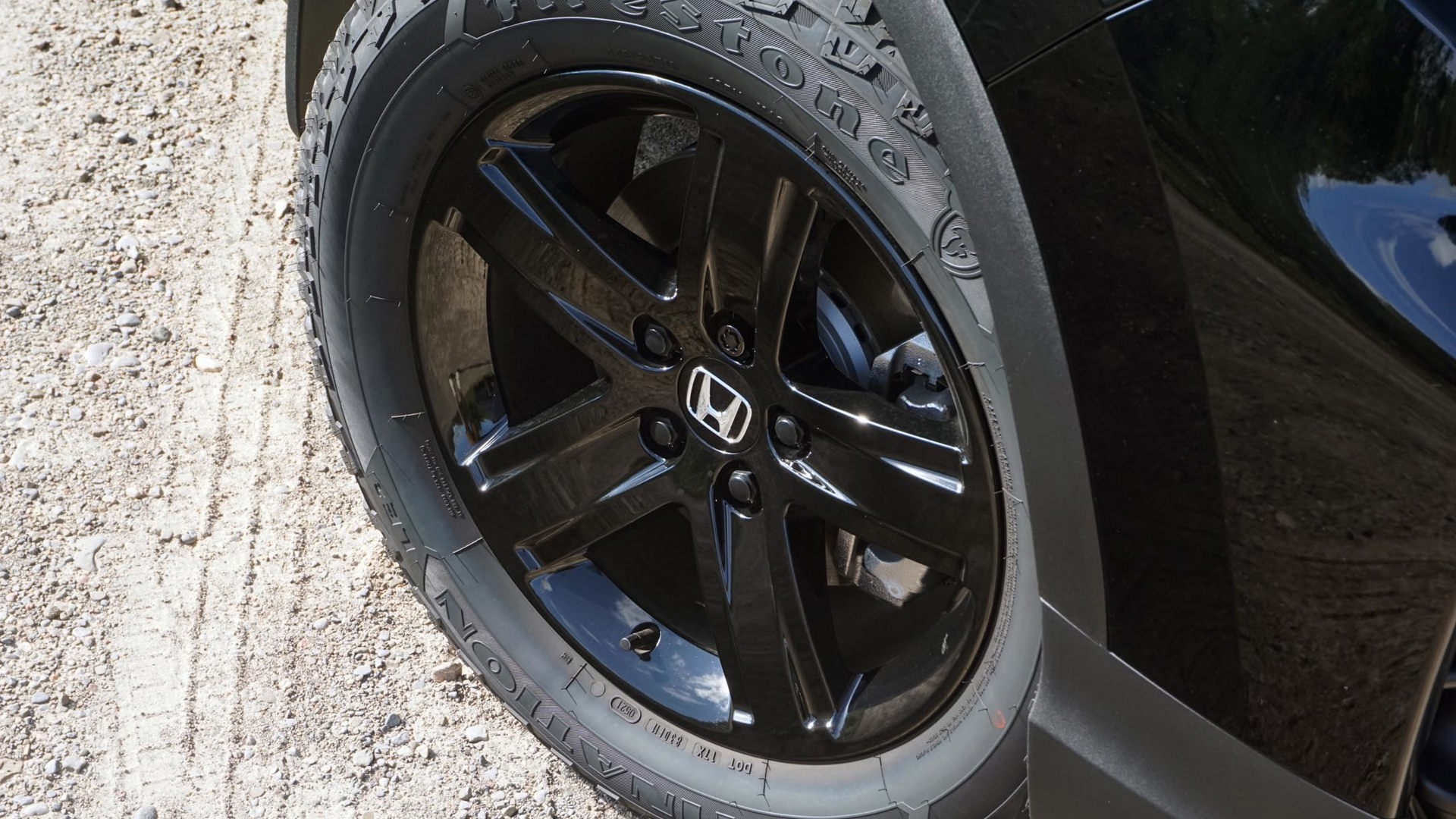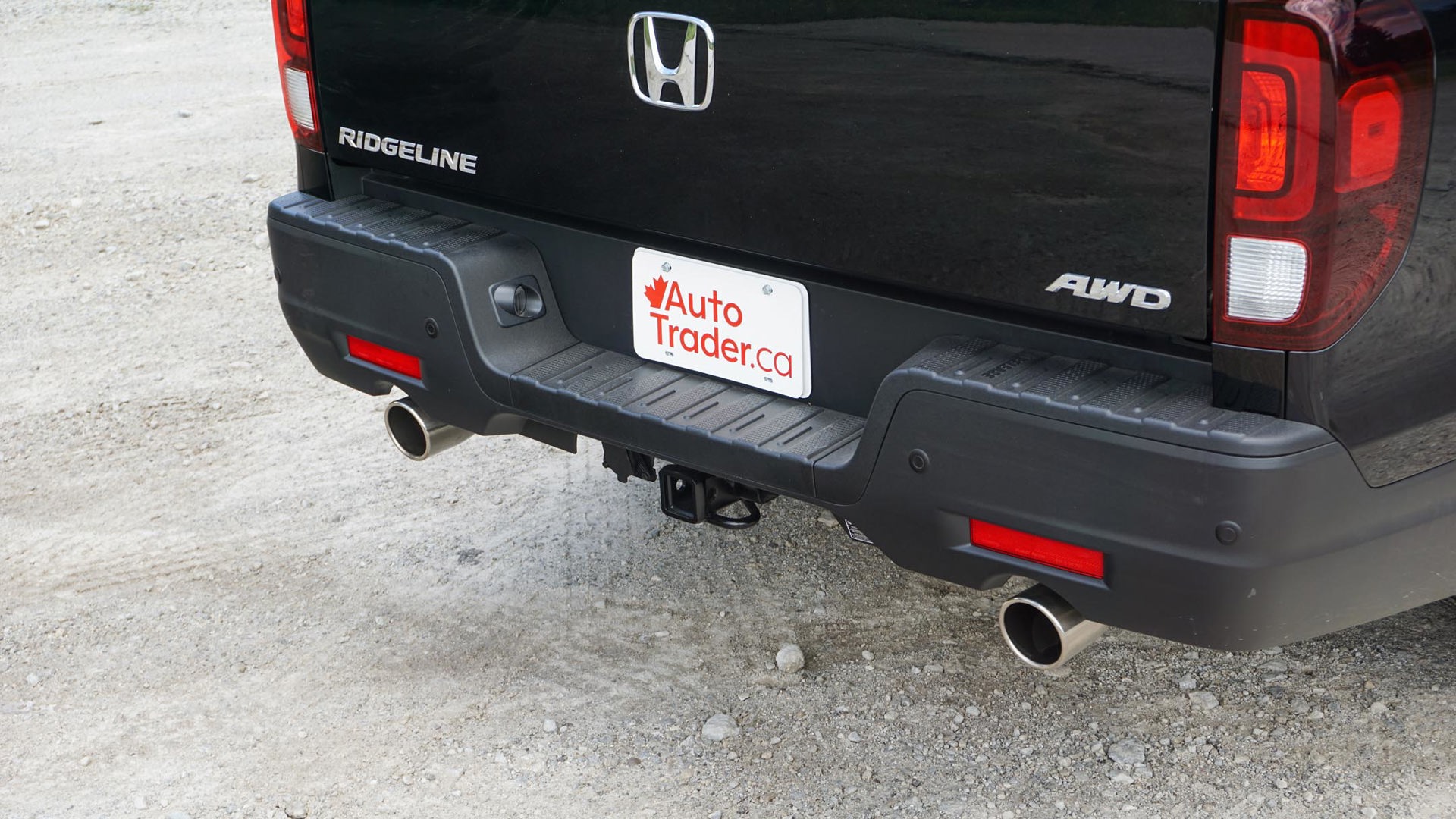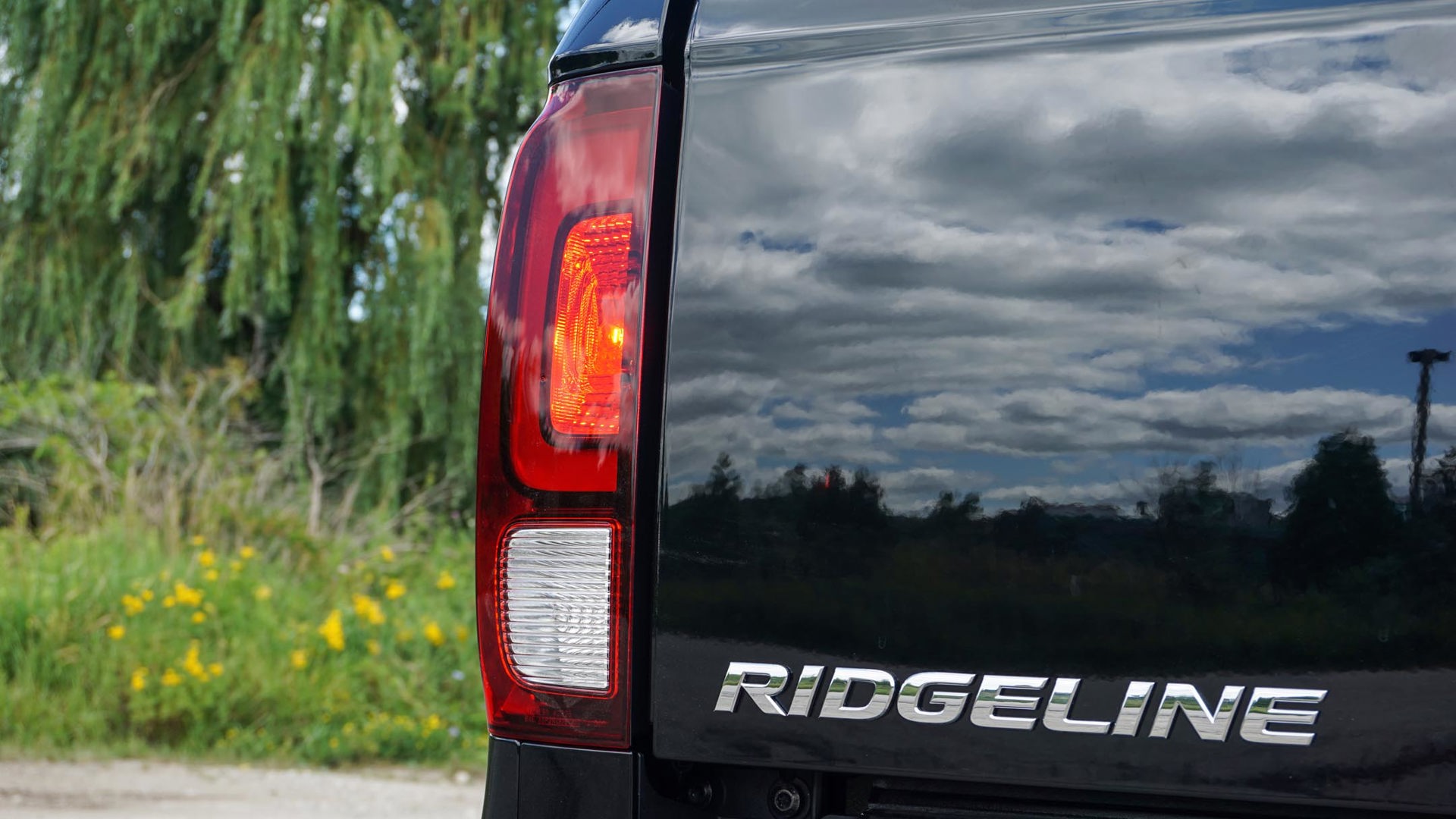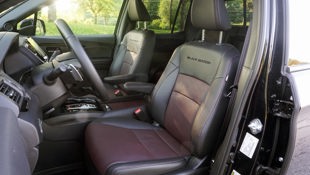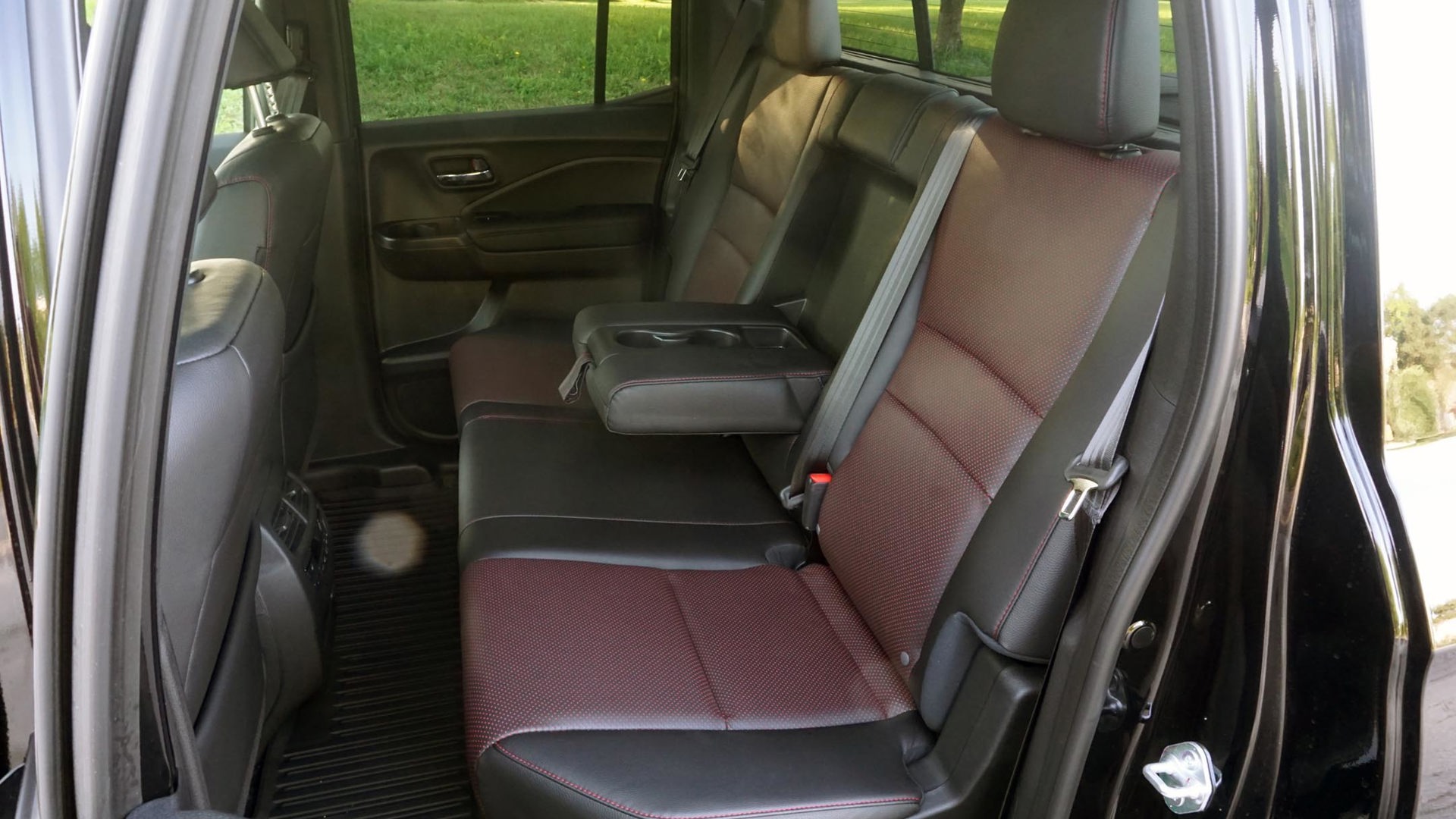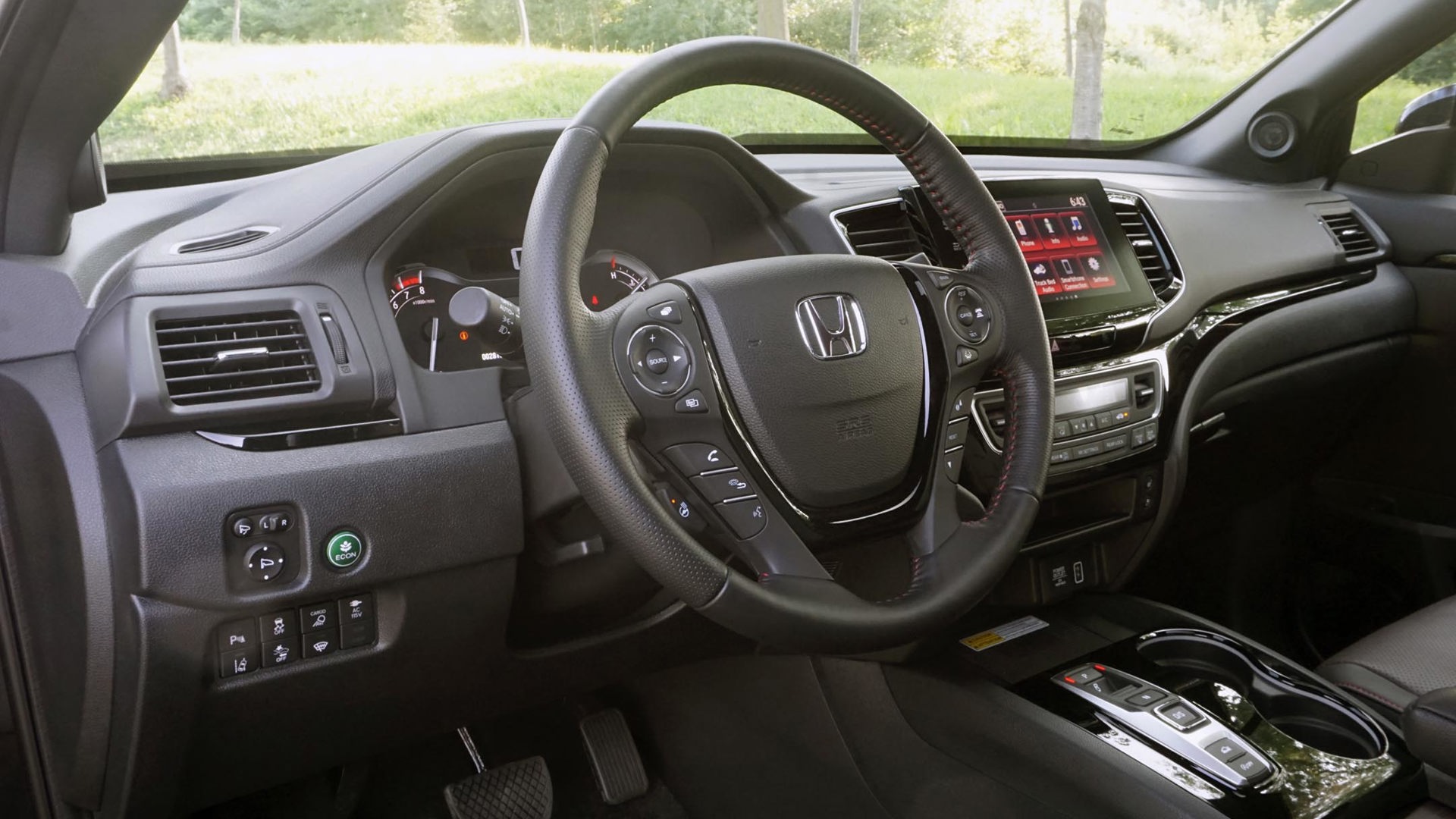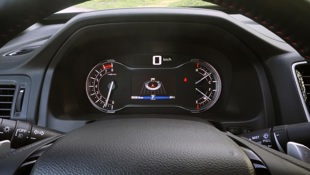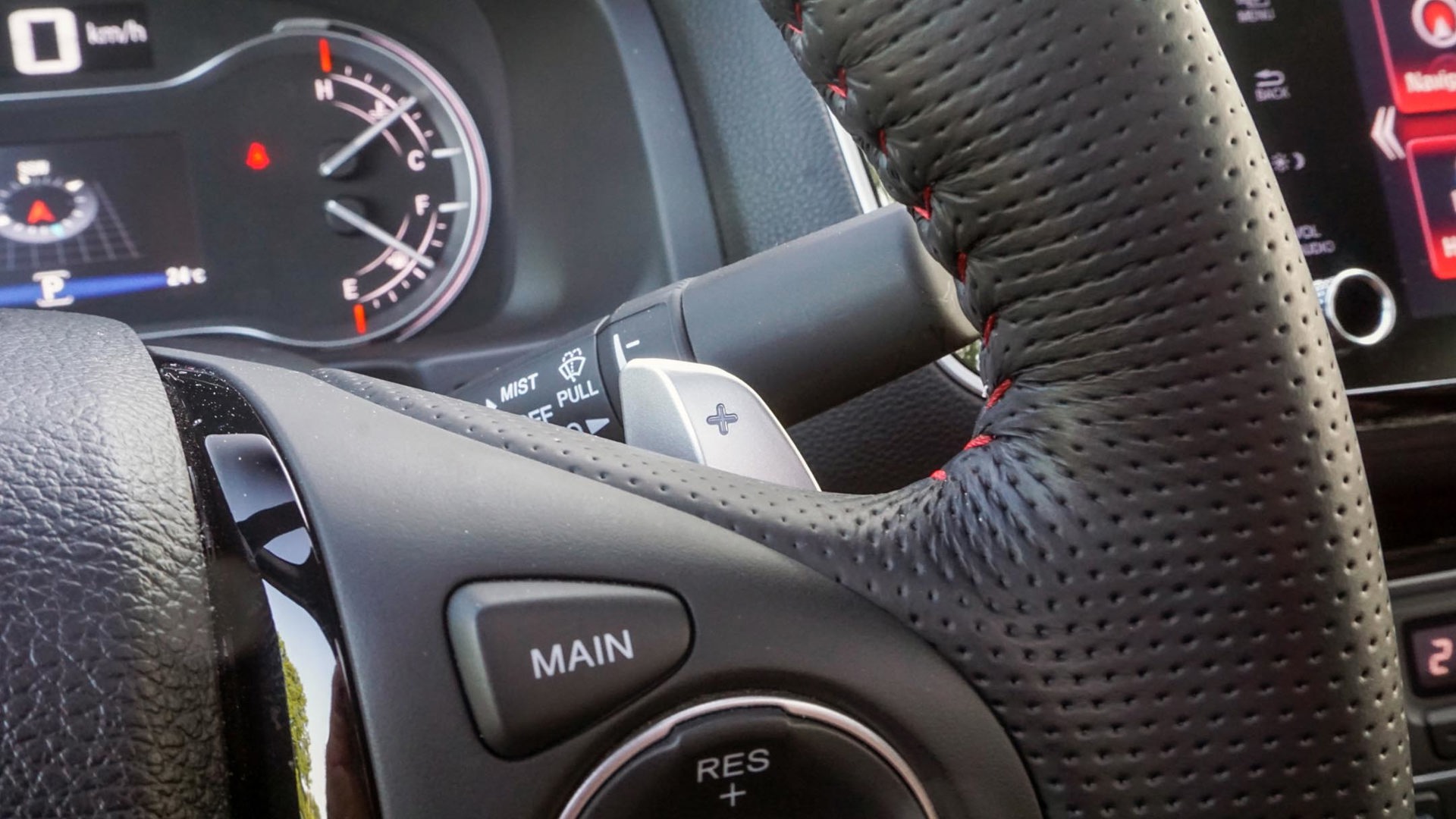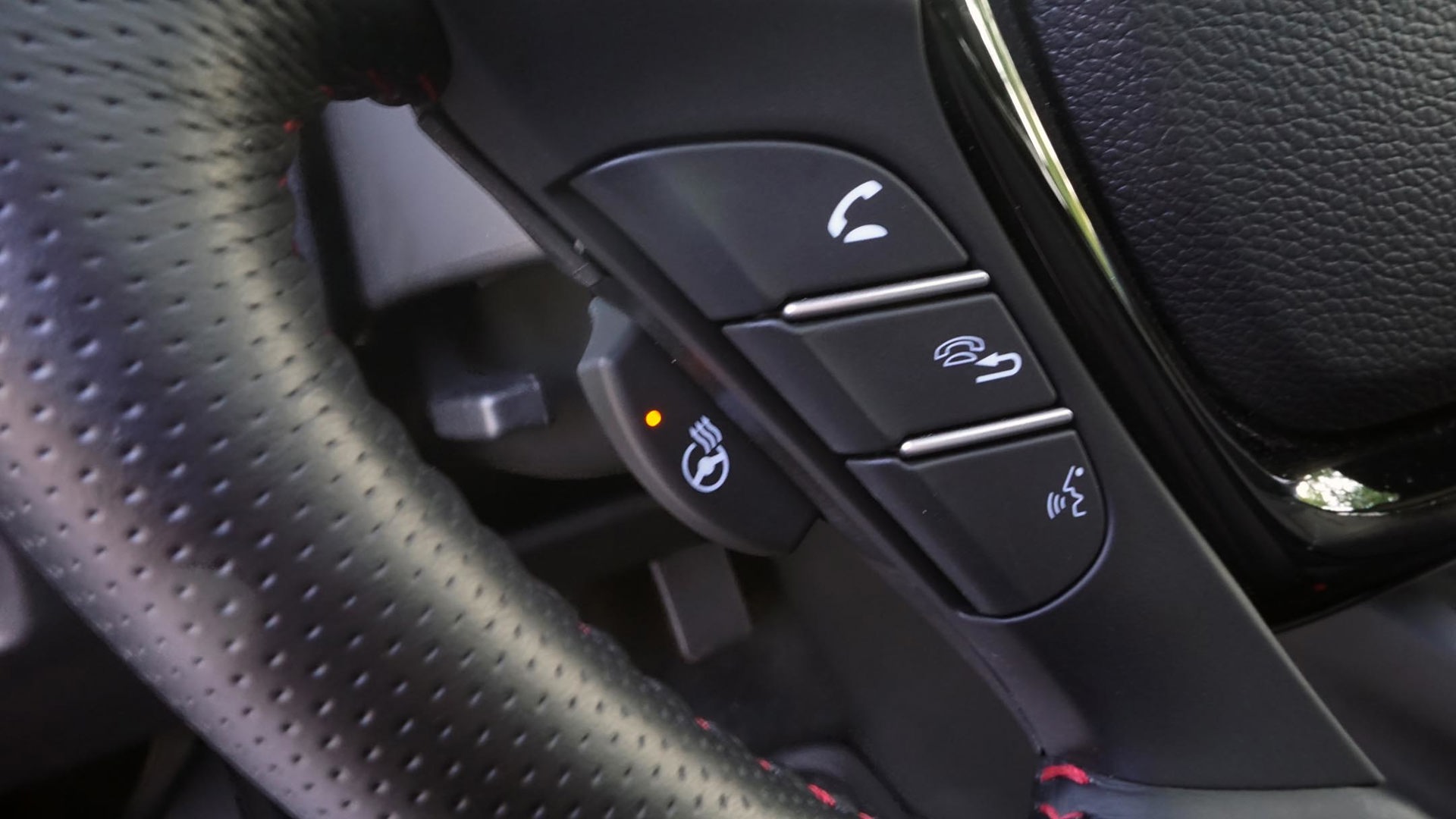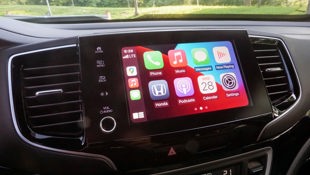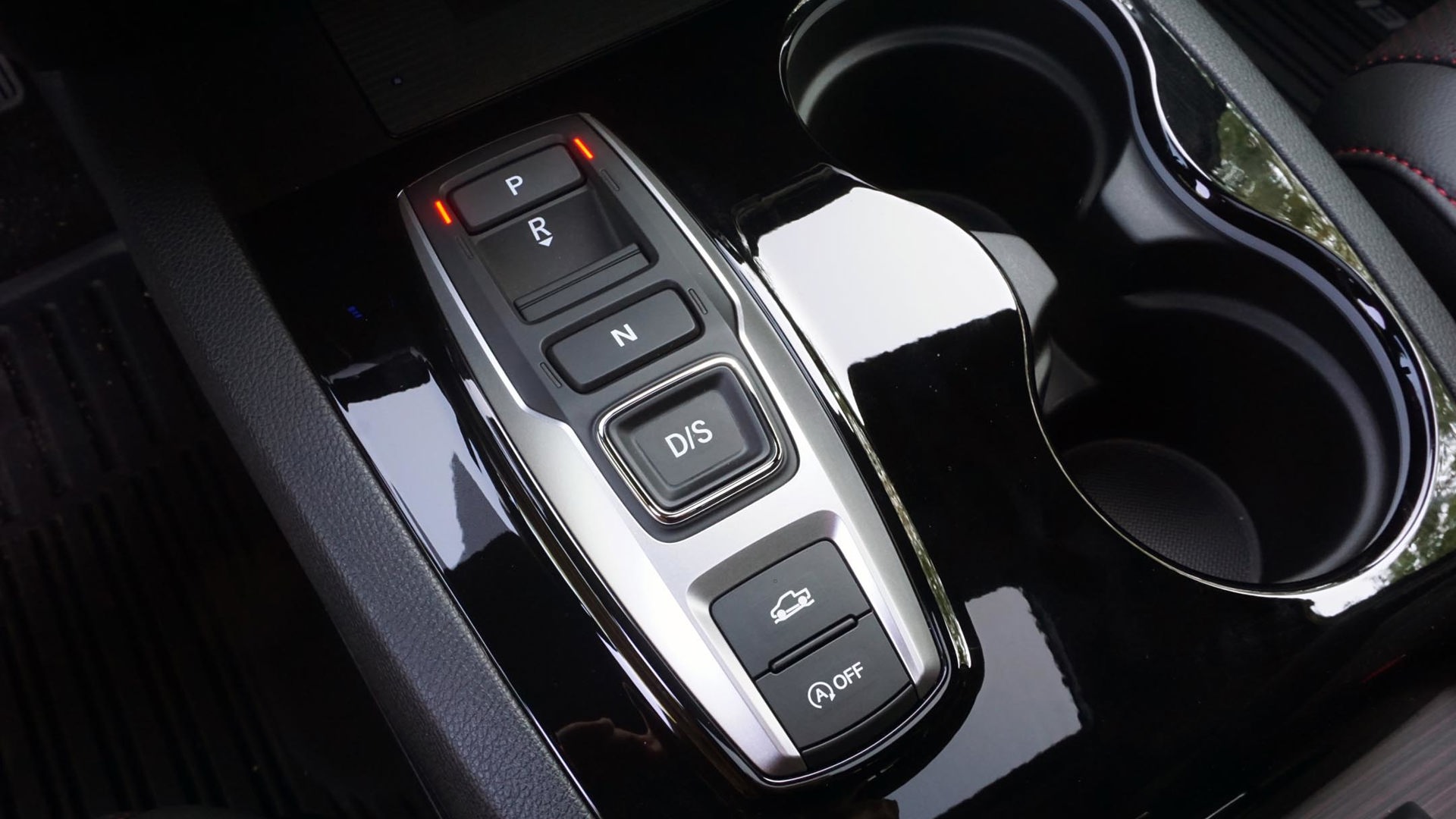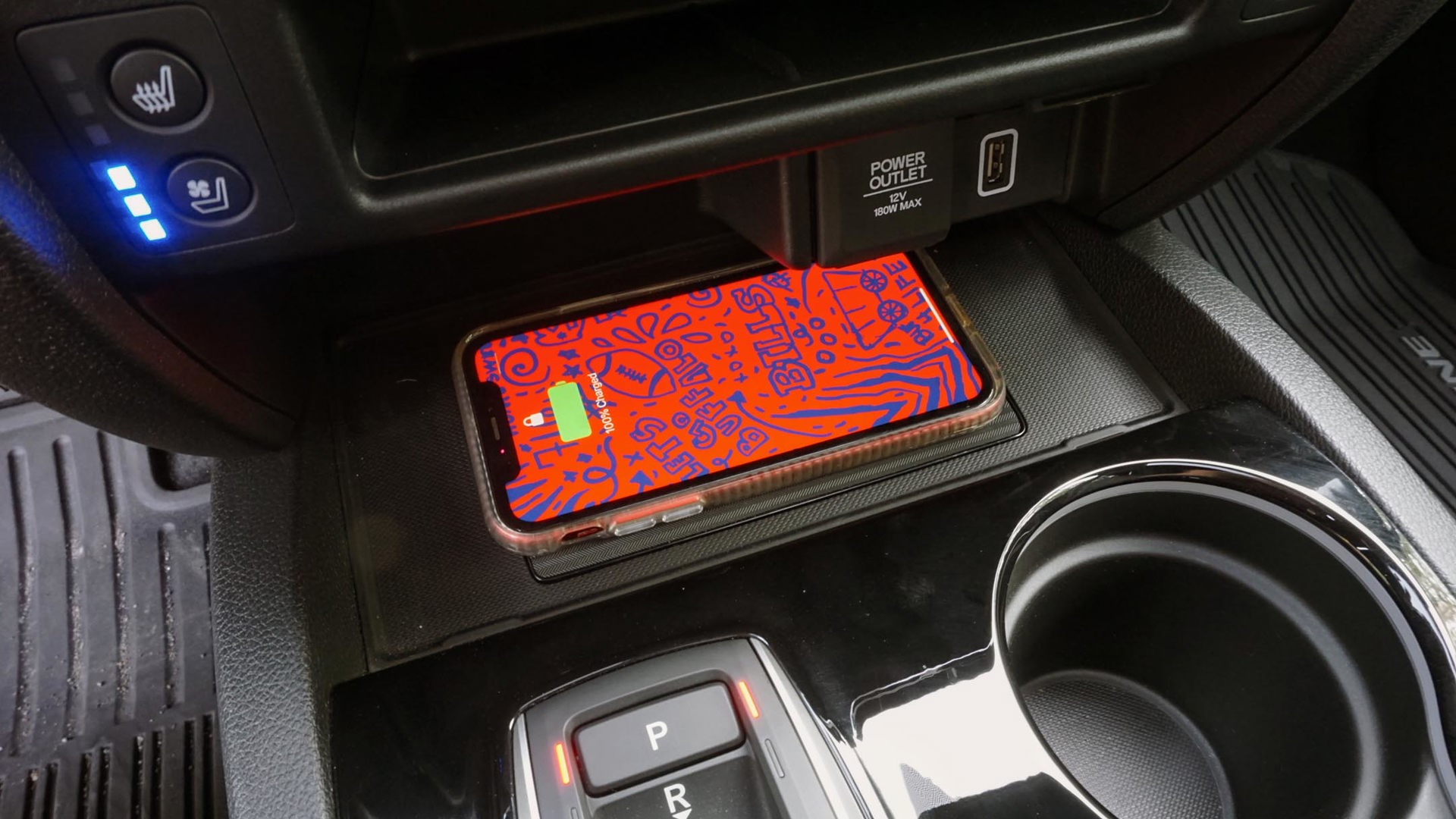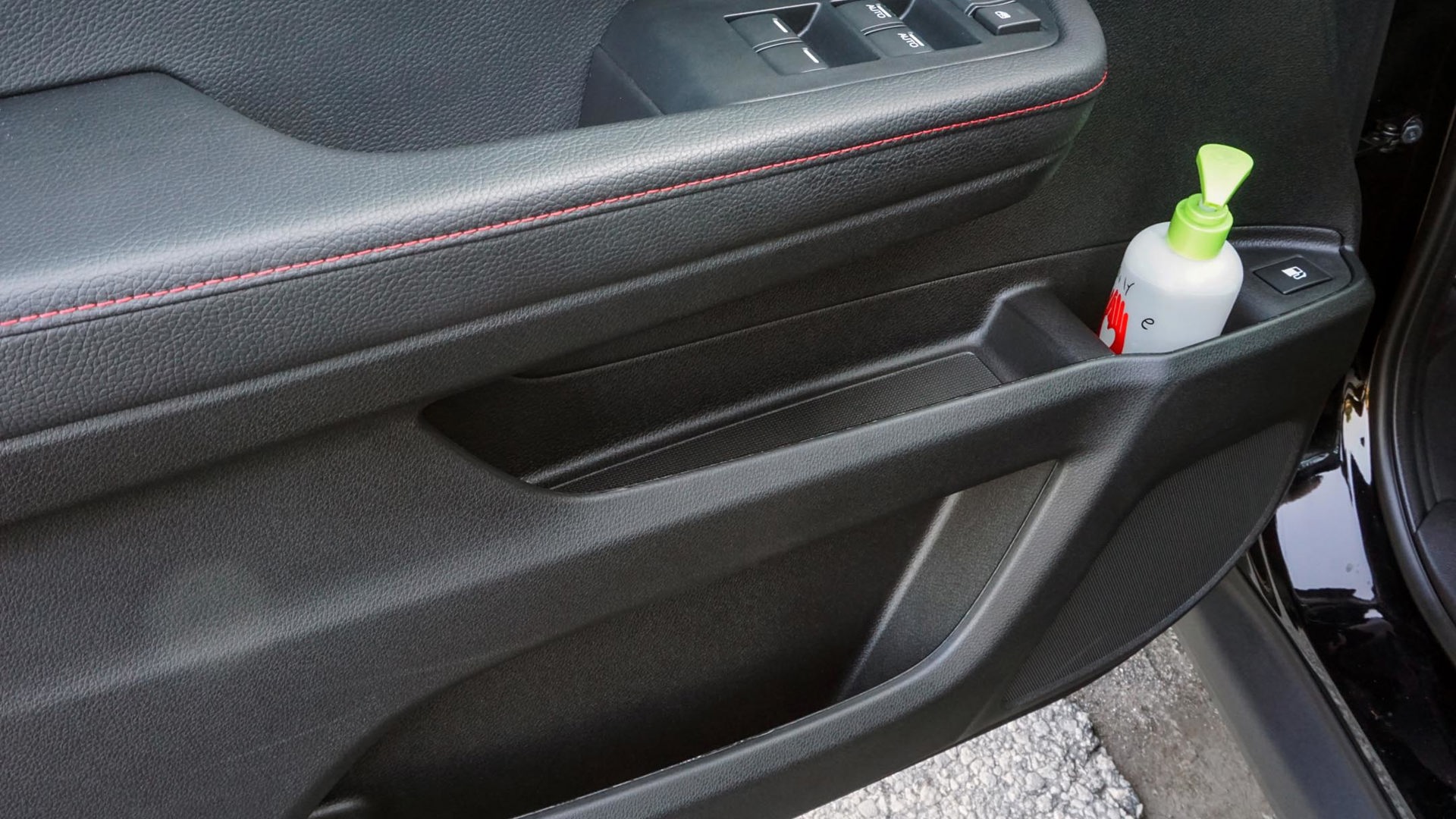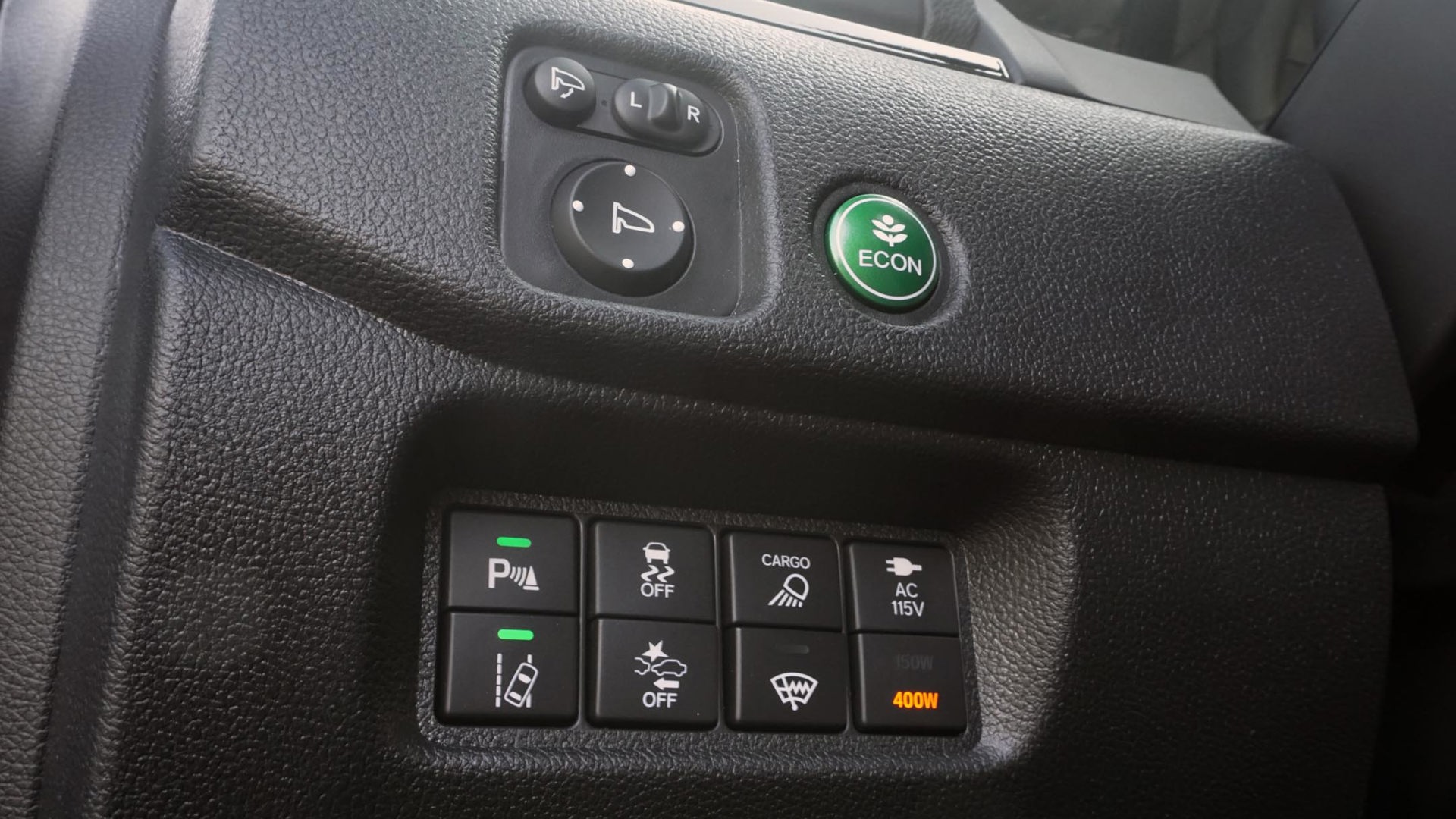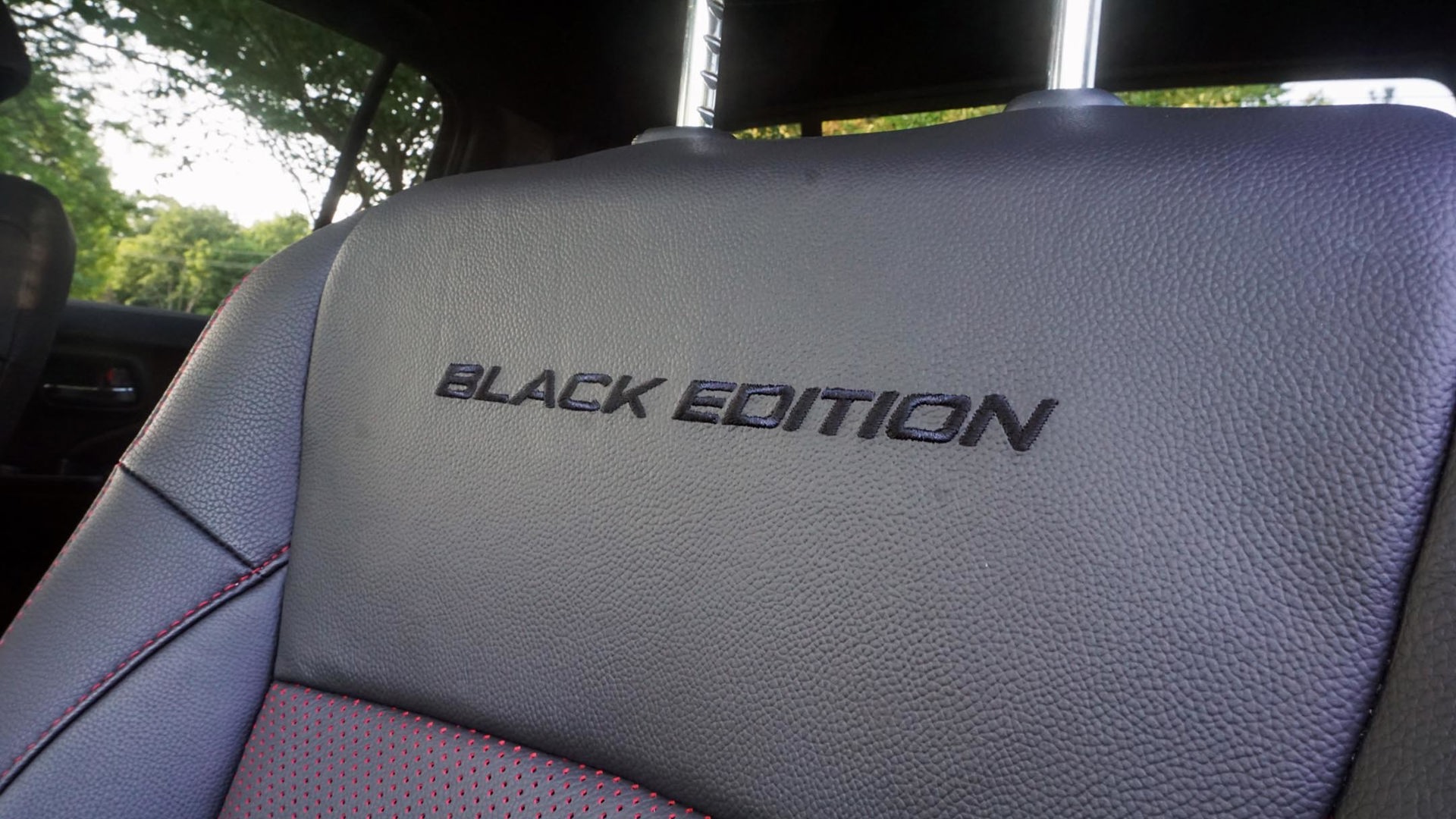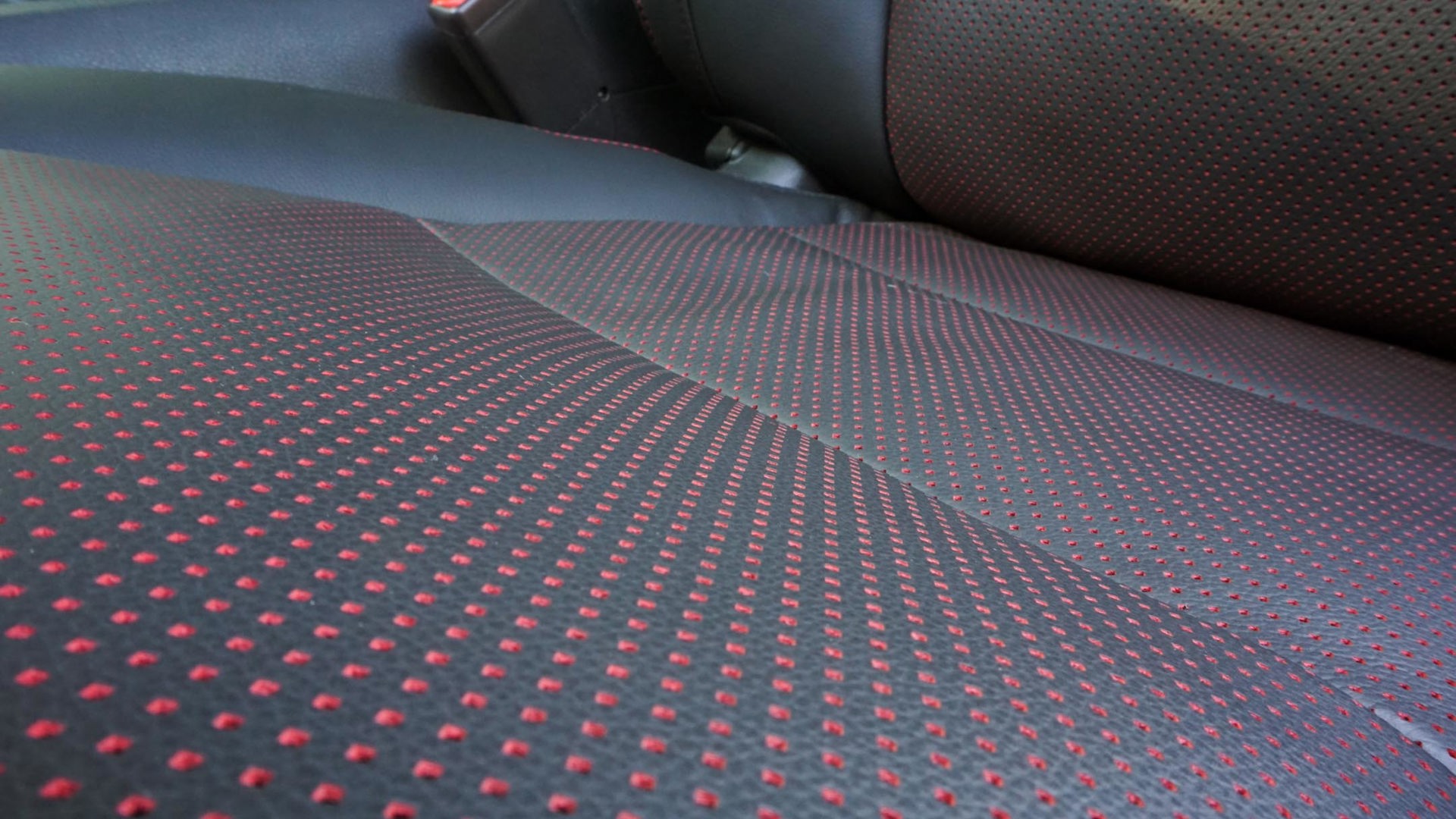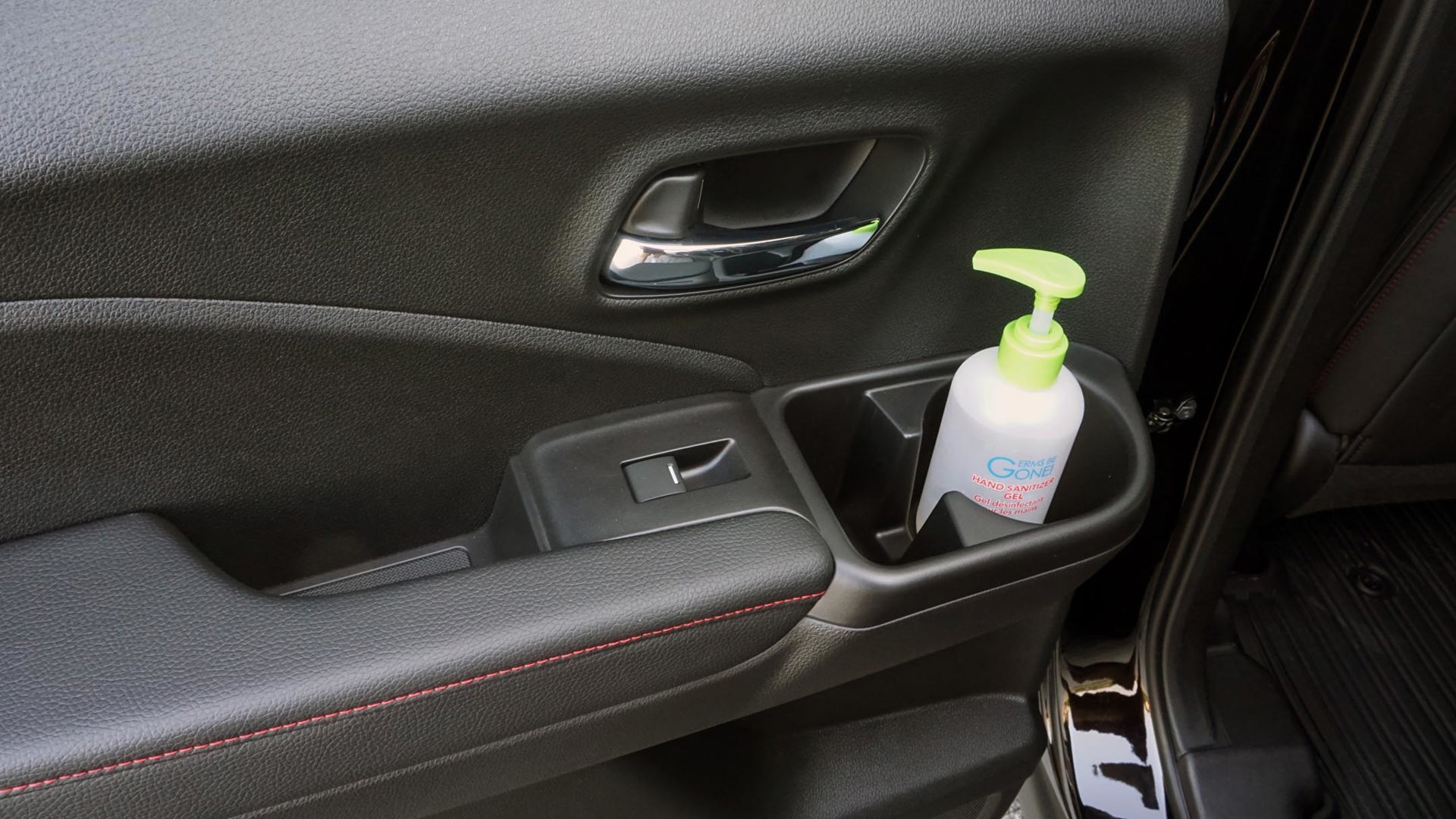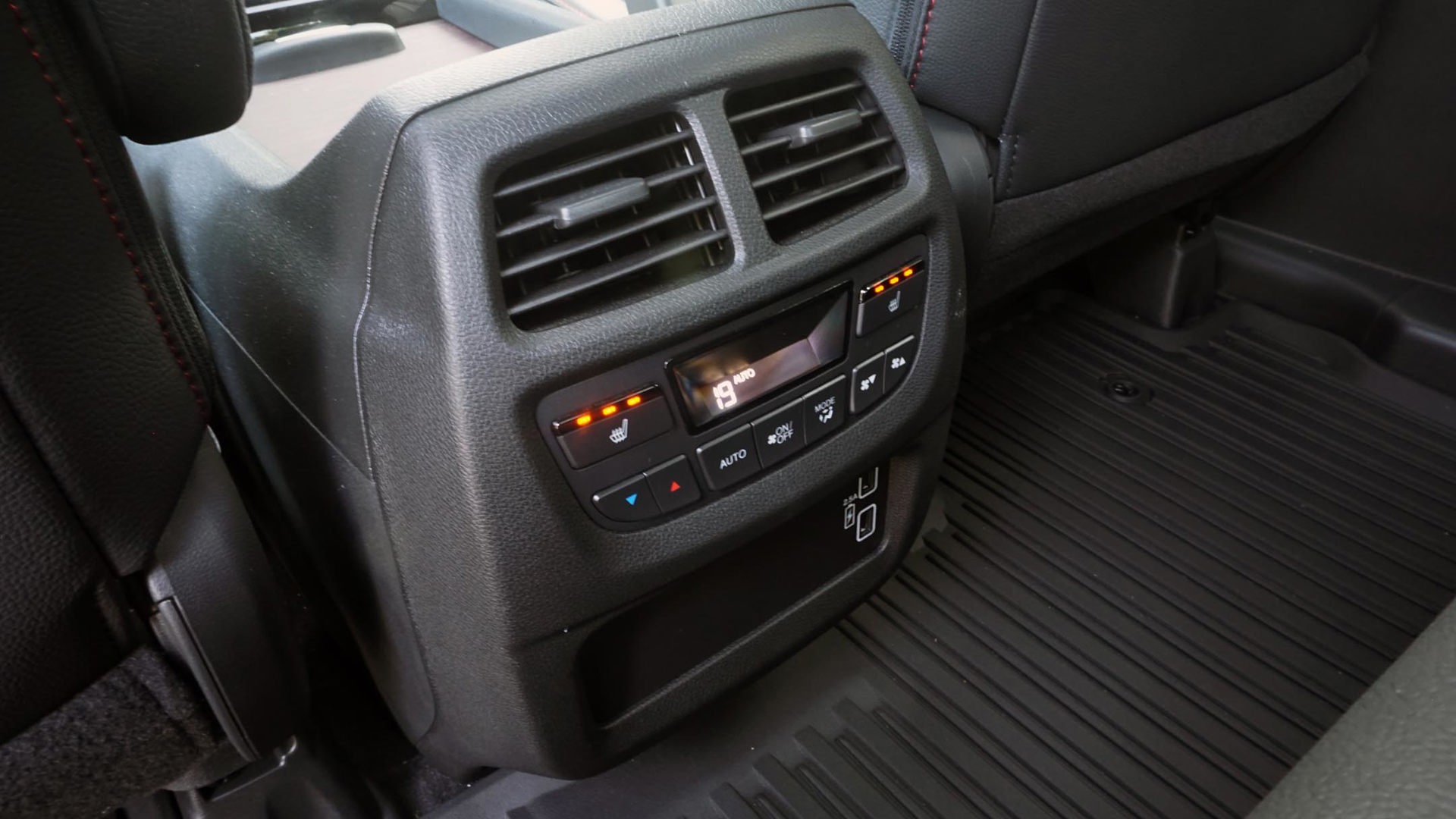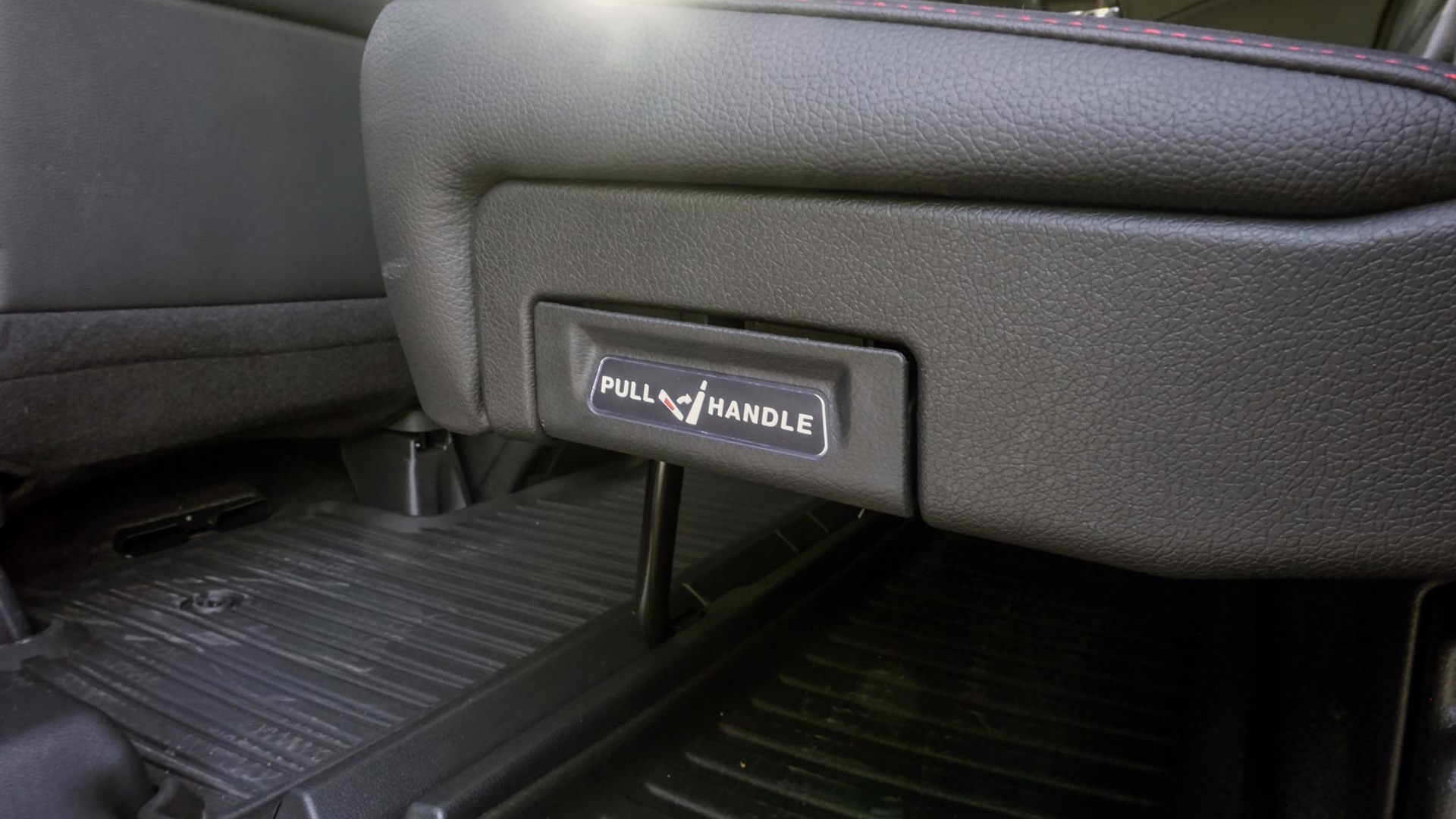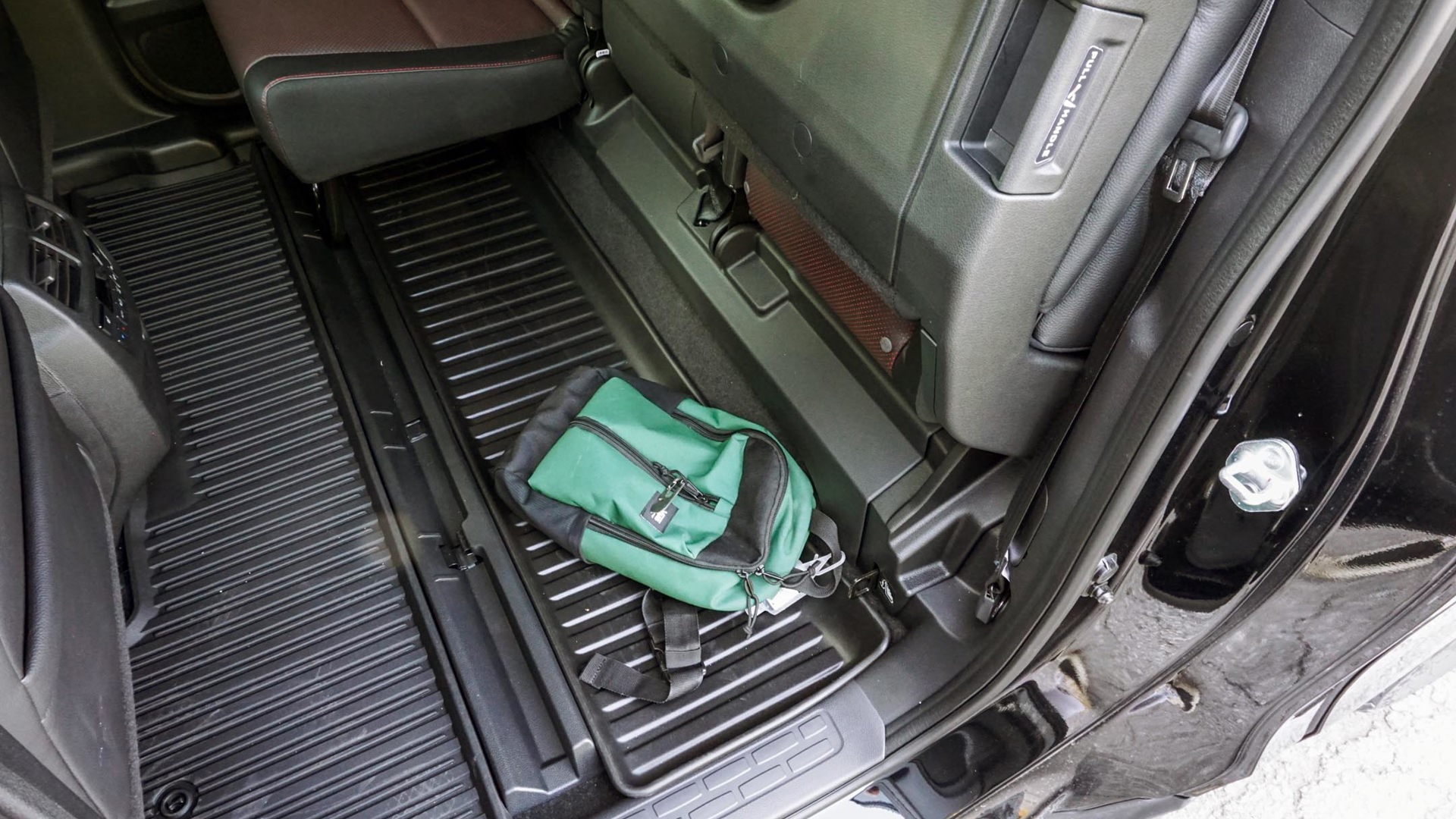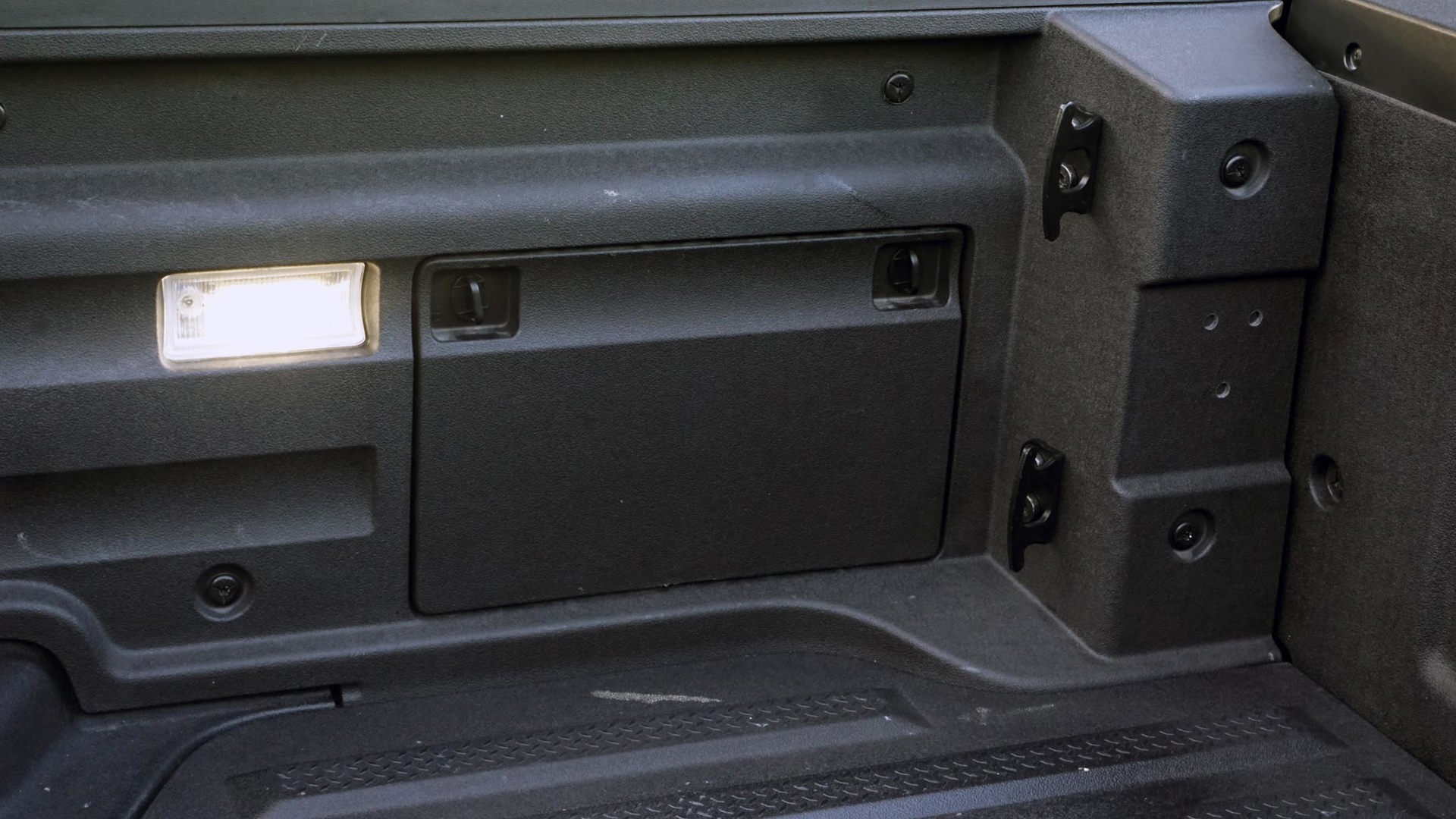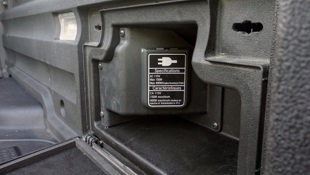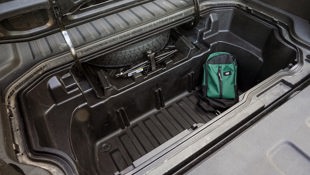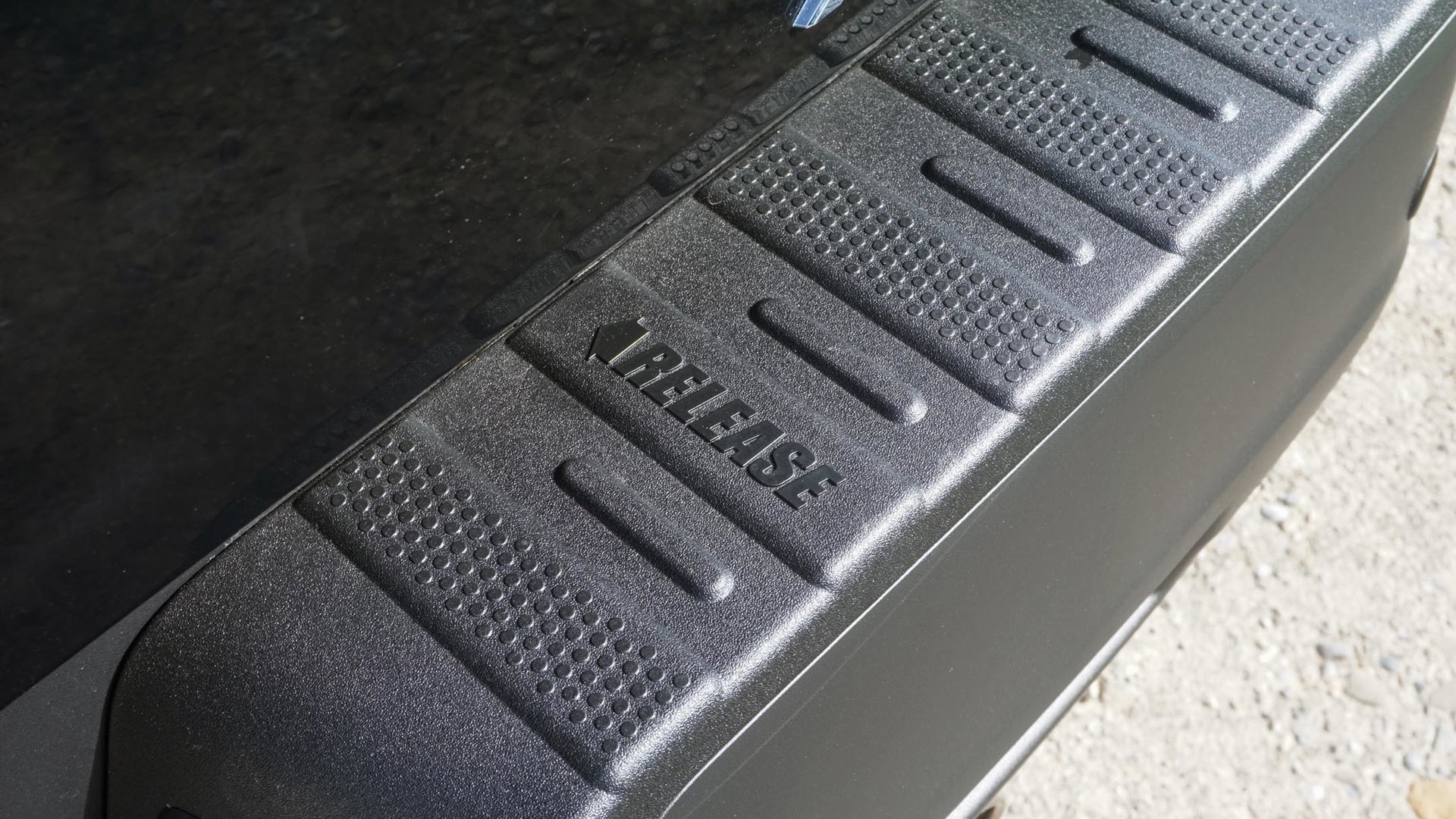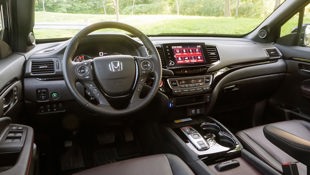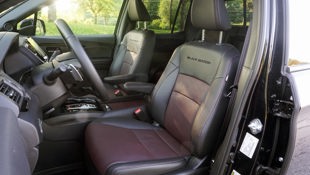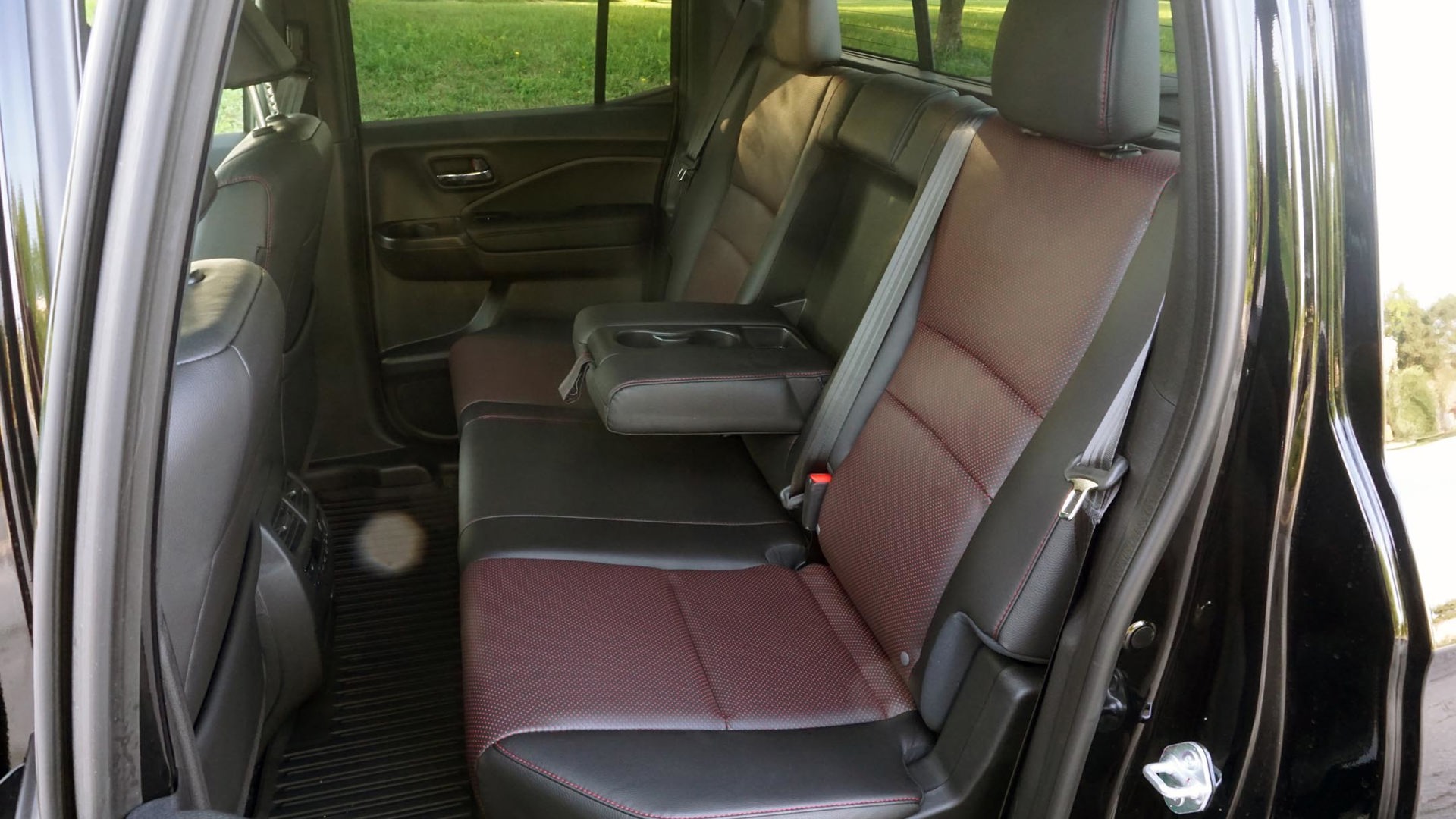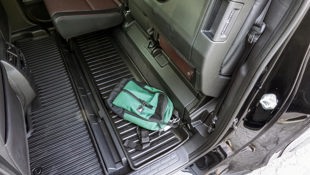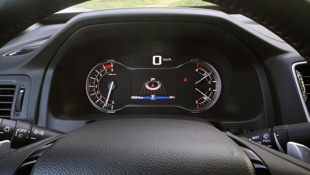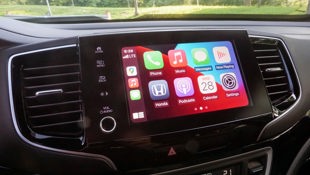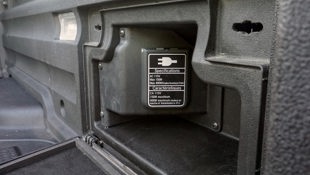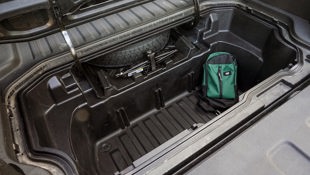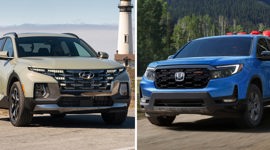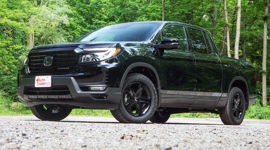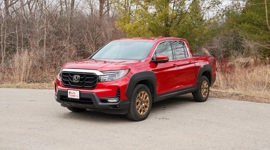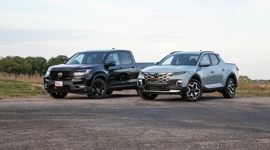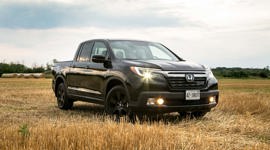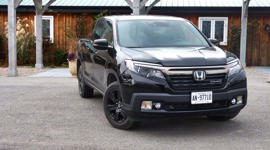 AutoTrader SCORE
AutoTrader SCORE
-
STYLING8/10
-
Safety8/10
-
PRACTICALITY9/10
-
USER-FRIENDLINESS9/10
-
FEATURES9/10
-
POWER8/10
-
COMFORT8/10
-
DRIVING FEEL9/10
-
FUEL ECONOMY8/10
-
VALUE7/10
The 2021 Honda Ridgeline is the perfect pickup for those who want to have their cake and eat it, too.
No, it doesn’t have the outright capability of a traditional truck, but it counters with SUV-like comfort and drivability while retaining an open bed, decent towing and payload capacities, and some seriously clever storage solutions inside and out. Push past the sticker shock, and this is more than enough truck for the vast majority of tasks, not to mention the vast majority of buyers.
Power: 8/10
For starters, rather than the umpteen powertrains offered by most pickups, the Ridgeline gets one: a 3.5L V6 paired with a nine-speed automatic transmission that channels torque to a fully automatic all-wheel drive system. It’s not exactly a showstopper as far as mechanicals are concerned, but it just does what it needs to do.
The engine makes 280 hp and 262 lb-ft of torque, similar to other midsize trucks motivated by six-cylinder motors. The torque delivery is nice and linear, so no surprises or surges, and the transmission doesn’t spend time hunting for gears.
Fuel Economy: 8/10
The all-wheel drive system prefers to power the front wheels as part of an efficiency-first mandate, and there’s no way to redirect the flow of torque outside of different modes that tailor the drivetrain to conditions like snow and mud. Officially, it’s about as efficient as other V6-powered midsize trucks, and is rated for a combined 11.5 L/100 km – a number matched during some 560 km of testing.
Styling: 8/10
Styling updates for 2021 are limited to a new front clip that makes the Ridgeline look less like its sibling three-row SUV, the Pilot, and more like its own model. Otherwise, this crew cab cuts a clean and sensible image. In its most expensive Black Edition duds, the Ridgeline swaps flashy exterior trim bits for ones finished in its namesake shade.
The same is true of the cabin, which is a largely blacked-out space save for the door handles and subtle red stitching, as well as the red perforations in the seat cushions front and back. Equally as understated as the outside, it’s only the excessive glossy black plastic on the dash, doors, and console in this top trim that’s unbecoming, with plenty of dust particles and fingerprints showing up on the surfaces.
Practicality: 9/10
The Ridgeline’s interior is well proportioned for a pickup of this stature, with more second-row space than any other midsize truck on the market. It doesn’t stray into half-ton territory, but there’s noticeably more space in the back than the top-selling Toyota Tacoma has to offer. It’s not quite as spacious up front, however, though it’s the way the wheel tubs cut into the footwells that limits legroom.
Small-item storage could also be improved – not that there isn’t ample space, but rather a lack of versatility. For example, the covered console is large enough to swallow a purse, but it could also be taller to provide multiple shelves instead of one big bin. And while the rear doors feature device storage and cupholders next to their integrated armrests, there are no pockets down low.
The bench in the back does offer added versatility by way of a 60/40-split folding lower cushion that can be raised to provide a mostly flat load floor, or simply to stash stuff beneath it. And this being a unibody truck rather than the more traditional body-on-frame construction, there’s a 207-L locking trunk beneath the bed.
At 1,270 mm (50 in) between the tiny wheel wells, there’s enough space to lay a typical sheet of plywood between them – something that can’t be done with the Tacoma or Ford Ranger. The Ridgeline also features a fancy dual-hinged tailgate that can be opened conventionally or swung sideways, the latter of which is particularly helpful when accessing that in-bed trunk.
Where this Honda often catches flack is its ability to haul (or relative lack thereof). In reality, the 674-kg (1,486-lb) payload rating of this particular trim is slightly more than the Ranger’s, and somewhat significantly more than the Tacoma’s 524 kg (1,155 lb) in a similar configuration.
It’s towing that’s the Ridgeline’s bigger problem, with a capacity of 2,268 kg (5,000 lb) compared to 2,903 kg (6,400 lb) for the Tacoma and the Ranger’s 3,400 kg (7,496 lb). Whether that’s a sticking point comes down to individual needs, but those who don’t tow that much – or that often – should do just fine opting for this Honda.
Driving Feel: 9/10
Its driving manners deserve much of the credit for making that limited capacity an afterthought, with the Ridgeline handling much more like an SUV than a typical truck. While the Ram 1500 and its air suspension is the undisputed ride quality champion among pickups, Honda has delivered what’s easily the best of the midsize bunch. There’s just enough of the kind of rigidity pickups are known for to go with outstanding compliance and comfort all around.
To take it a step further, there are premium sport utilities that lack the composure of the Ridgeline. Steering response is good even if outright feel isn’t, while the minimal body roll on display makes this as enjoyable to drive as it is easy.
Comfort: 8/10
Ride comfort is nice, though the amount of outside interference that makes its way into the cabin – particularly on the highway – doesn’t meet the same threshold. It’s particularly disappointing given the standard noise cancellation that’s fitted to every Ridgeline trim, with the chunky-looking tires fitted to this tester generating quite a bit of ruckus from below.
User Friendliness: 9/10
It’s easier than ever to drown out the excess road noise, with a proper volume knob making its triumphant return to the centre stack as part of the truck’s updates for 2021. Now all that’s missing is a corresponding tune/scroll knob – or buttons; there’s no need to get too picky – and a more conventional gear selector instead of the push-button setup Honda has moved to. It’s not as if it’s impossible to grow accustomed to the P-R-N-D/S switches on the console, but it’s something of an unnecessary change given it didn’t result in a better use of the space.
The rest of the button-heavy cabin is far more intuitive, beginning with the climate controls. The panel on the centre stack features buttons and rockers, as well as a corresponding LCD display that shows system temperatures, while second-row occupants get their own set of HVAC switchgear on the back of the centre console.
Honda’s infotainment interface lacks the style and grace of rivals, but it worked well enough during testing to earn a passing grade. The eight-inch touchscreen is responsive to inputs, with only the automaker’s interface itself slow to respond – a shortcoming that’s easy to ignore once a smartphone is mirrored via the standard Apple CarPlay or Android Auto connections.
Features: 9/10
The Ridgeline’s assortment of standard and available content is extensive. The base Sport trim gets good stuff like the two-way tailgate, in-bed trunk, cargo lights, and tie-down cleats, as well as alloy wheels, power-sliding rear window and sunroof, and heated door mirrors. Inside, the front seats and steering wheel are heated, the tri-zone climate control system is fully automatic, and there’s a wireless phone charger.
The EX-L trim adds leather upholstery, heated rear seats, memory settings for the driver’s seat and door mirrors, satellite radio, and front and rear parking sensors, while the Touring trim adds ventilated front seats, an upgraded stereo, built-in navigation, interior ambient lighting, USB ports in the second row, a power outlet and speakers in the bed, power-folding mirrors, and rain-sensing wipers. Finally, the Black Edition takes everything from the Touring trim and adds blacked-out exterior and interior accents.
Safety: 8.5/10
Advanced safety equipment is the same across the board, with forward collision warning with automatic emergency braking, blind-spot monitoring with rear cross-traffic alert, lane-departure warning and lane-keep assist, automatic high-beam headlights, and adaptive cruise control fitted to all four trims.
The systems are as good if not better than what most midsize trucks offer, and most of it works as intended. Steering wheel controls are easy to understand, with the ability to turn lane-keeping on or off or adjust the adaptive cruise’s gap from preceding vehicles with little more than the tap of a thumb. However, Honda’s notoriously sensitive forward collision warning means plenty of beeping and flashing around town – even in stop-and-go traffic on the highway.
Value: 7/10
The standard safety gear makes the 2021 Ridgeline’s starting price of $46,225 before tax but including a non-negotiable $1,870 freight charge a little less eye-watering. That’s not exactly cheap, but then it’s similar to the starting price for the cheapest crew cab Tacoma. The EX-L is $49,225, while the Touring trim is priced at $53,425, and the Black Edition like the one tested rings in at $55,225.
The Verdict
That makes this Ridgeline more expensive than the Ford Ranger Tremor, although they’re different trucks altogether. For starters, this Honda isn’t built to venture off the beaten path, nor was it made to tow as much as a conventional truck. But that’s because it’s a pickup for realists.
There’s more room for people inside, there’s more to it than just a bed bolted to the back, and it drives more like an SUV than a truck. It’s more comfortable, too, and it has amenities that are hard to come by in a midsize truck like heated and ventilated front seats, heated rear seats, and that trunk under the bed. It’s the kind of stuff that’s handy in a family hauler that doubles as a dump-run wizard, a camping companion, and whatever else it needs to be. That’s the kind of capability and versatility that makes any spec-sheet shortcomings easy to ignore.
| Engine Displacement | 3.5L |
|---|---|
| Engine Cylinders | V6 |
| Peak Horsepower | 280 hp @ 6,000 rpm |
| Peak Torque | 262 lb-ft @ 4,700 rpm |
| Fuel Economy | 12.8 / 9.9 / 11.5 L/100 km cty/hwy/cmb |
| Cargo Space | 960 L |
| Model Tested | 2021 Honda Ridgeline Black Edition |
| Base Price | $53,355 |
| A/C Tax | $100 |
| Destination Fee | $1,870 |
| Price as Tested | $55,325 |
|
Optional Equipment
None
|
|
